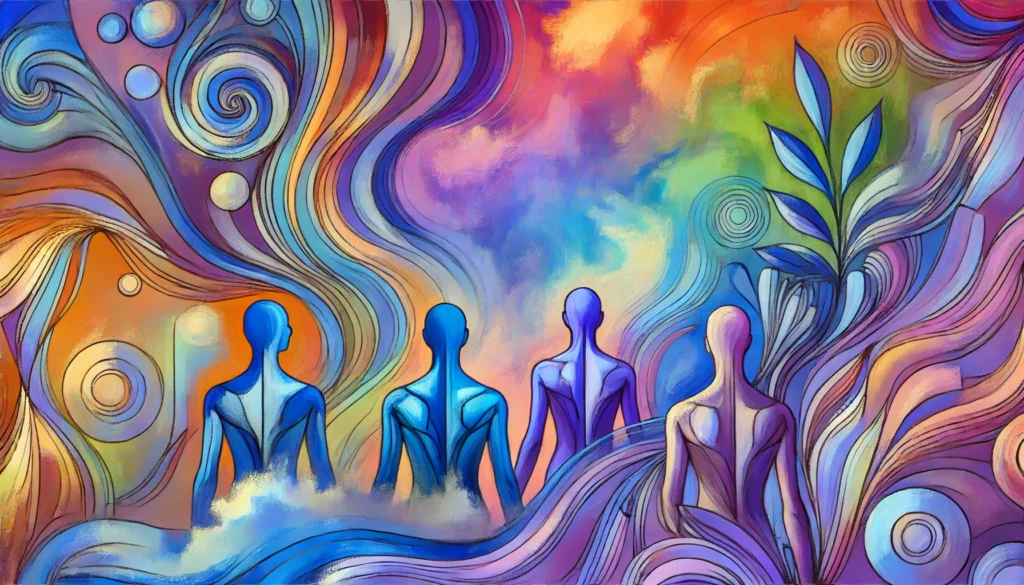WORKSHOPS
Workshops will be announced continuously as attendee applications are reviewed and approved.
Engaging Mind and Body in Practice
At the heart of Body Psychotherapy lies the principle of actively engaging both the body and the mind—a philosophy we wholeheartedly embrace. True to this core value, a significant part of the festival program is devoted to 90-minute experiential workshops, conducted by fellow attendees. These hands-on sessions allow us to practice what we preach (if anything), fostering a rich environment for learning and sharing expertise.
Want to Lead a Workshop?
1. Submit Your Proposal:
After purchasing your Festival Pass, you’ll receive an email confirmation. Use the payment order as Ticket Number to submit your workshop application.
2. Review Process:
The Festival Content Committee will review all submissions. Priority is given to experiential workshops.
3. Confirmation:
Approved workshops will be added to the festival program, and you’ll be notified of the next steps.
The deadline for submitting workshop proposals was until July 31st. Some applications are still being reviewed by the content committee. If you have any questions, please reach out via email.
“Listen! - Your Body Has Something To Tell You”
Iva Hristova, bulgaria
Iva Hristova is a licensed psychologist specializing in women's emotional well-being, particularly during the transition to motherhood. With a BA in Psychology from DePaul University, Chicago and ongoing studies in body psychotherapy, she integrates talk therapy with movement, dance, mindfulness, and embodiment. Iva leads workshops and retreats on self-love, feminine energy, conscious parenting, and emotional intelligence. As founder of AmalaJewelry, she designs gemstone pieces to support emotional healing. Her work centers on helping people reconnect with their authentic selves through body wisdom, emotional presence, and compassionate transformation.
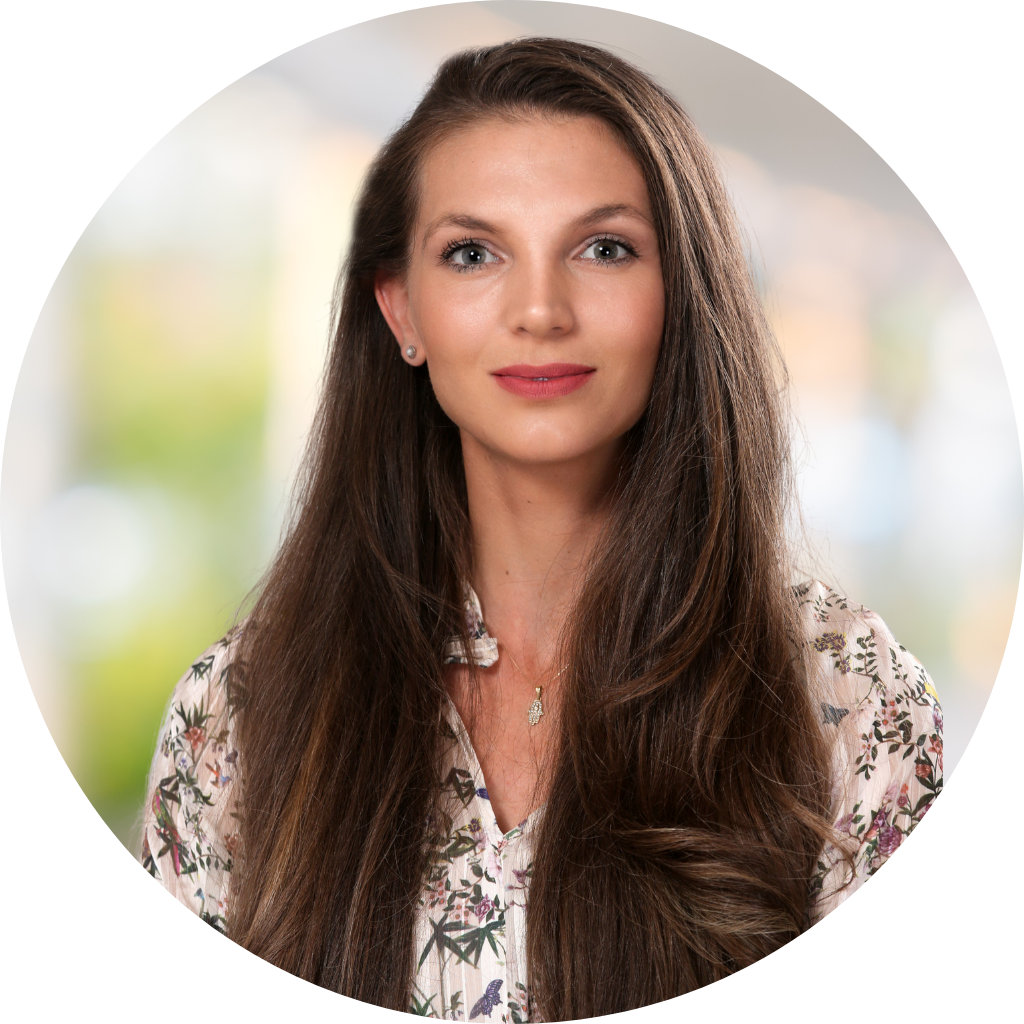
friday, September 5th | 11:00 AM
Session 1 | room "SUNDARI"
“Integrative and Body Movement Therapy”
Martin J. Waibel, germany
Martin J. Waibel is a teaching therapist for Integrative Body and Movement Therapy, Integrative Therapy, Master of Science (Psychotherapy), Dipl. Supervisor (University of Amsterdam) and Dipl. Social Worker (HS RV/Wgt). He worked for 41 years at a specialist clinic for psychotherapy and psychosomatics, where he worked with numerous patients suffering from chronic pain of various origins. He now teaches at medical colleges and universities. He works in his own practice and gives seminars on body and physical psychotherapy throughout Europe. Many publications, including Körperpsychotherapie bei chronischen Schmerzen, Schattauer 2023

friday, September 5th | 11:00 aM
Session 1 | room "GITA VIDYA"
In order to do justice to our patients with chronic pain disorders, it is important to start from an interplay of biological, psychological, social and ecological factors. The subjective experience of life and suffering (context) in the development of our patients’ lifespan is explored phenomenologically (continuum) on the body. From the perspective of an integrative view of the body, pain is a trans-material emergence of the organism. By this we mean that material neurophysiological processes allow biochemical and transmaterial information to emerge in the form of motor, emotional, iconic or linguistic schemata or narratives. In other words, pain is a phenomenon that is partially measurable and visible, especially in the case of organically caused pain such as a nerve lesion (biologistic view), but just as difficult to grasp and objectify as, for example, in the case of emotional and social causes of pain. Chronic pain is seen as a specific form of experience, suffering and expression of the body that manifests itself in different phenomena. In this workshop you will get to know the methodology of Integrative Body and Movement Therapy (IBT) in order to perceive, grasp and understand the phenomena of the painful body of our patients and to alleviate them in appropriate therapeutically effective interventions.
“Touch in Functional Analysis: Theory and Body Practice”
gloria quattrini, italy
Gloria Quattrini, a Psychologist and (CTA)-EATA certified Transactional Analyst, specializes in Functional Analysis, training with Will Davis at Aetos (Mestre/Venice) and the Institute of Functional Analysis (La Spezia). She runs a private practice in Modena and teaches Bio-psycho-social counseling in Legnano (Milan). She collaborates with the Institute of Functional Analysis as a professor in introductory workshops.
For over a decade, she has led experiential workshops on affectivity. She has published in Disability and Social Network (Franco Angeli, 2006). Since 2022, she has lectured at the II and III International Forum of Functional Analysis. In 2023, she presented workshops at the EABP Congress (Sofia) and AIPC Congress (Rome) on Functional Analysis, early disorders, and the instroke process.
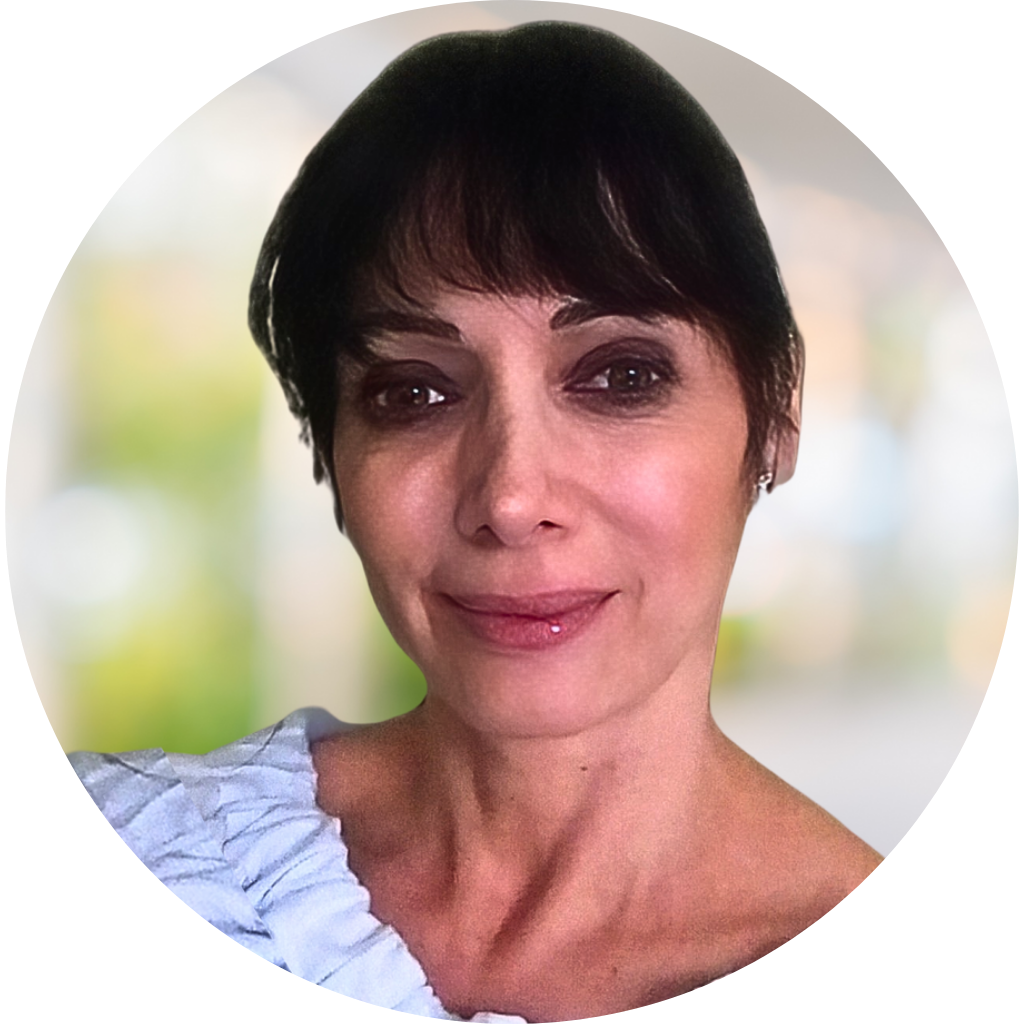
friday, September 5th | 11:00 aM
Session 1 | room "GAYATRI" [TRIPURA 1]
In 1984 W. Davis, inspired by W. Reich theories on energy, Lawrence Jones work on “Positional Release”, Ida Rolf’s theory on connective tissues, Charles Kelley’s Radix work on the body, and by Fritz Perls Gestalt therapy, begins to develop a working method called Functional Analysis, which is a combination of delicate touch and verbal work aimed at re-establishing the spontaneous energetic coordination of the organism (Davis 2012). One of the peculiarities of FA compared to other body therapies, is that the technique used, “P. & P./Points and Positions” is oriented towards the connective tissue as, according to Davis, it structures and maintains the defensive system (Davis 2018).
Functional Analysis was born as a method of self-regeneration of the organism. This approach directly treats the connective tissue through “points and positions”, a specific set of delicate touch which favors the instroke process (relaxation phase) where a gradual contact with the Self occurs and, consequently, a restructuring phase of the person also takes place.
Touch is characterized by certain elements such as pressure, rhythm and pause, each of them with therapeutic value. Touch is a “con-tact” with the person beneath his character defenses, thus facilitating the instroke process.
In this phase, according to Davis, nothing happens, but everything happens.
The workshop will focus on a theoretical part where the key principles of Functional Analysis and the function of touch will be briefly illustrated, followed by an experiential part where participants will try the body treatment by experiencing the basic technique of “Points and Positions Massage”.
“ The Sound in neuroscience and bioenergetics: pathways to authenticity, love and deep healing"
ada lentini, italy
Ada Lentini is a Medical Doctor specializing in General Surgery and a Certified Bioenergetic Therapist (CBT) trained at the Italian School of Bioenergetic Analysis (SIAB) in Rome, Italy. She teaches Emotional Anatomy in SIAB’s training programs, with a focus on the integration of neuroscience and the validation of the Bioenergetic model. Ada serves as President of the Italian Society of Bioenergetic Movement & Listening (SIMBA) and is an active member of the European Association for Body Psychotherapy (EABP), where she is part of the Forum Executive Committee.

friday, September 5th | 11:00 aM
Session 1 | room "SHANTI DEVI"
The purpose of the author in the present workshop is to use Bioenergetic Techniques (A.Lowen) in a dialogue with affective neuroscience : from Basic Cerebral Emotional Systems (J. Panksepp) to Polyvagal Theory (S.Porges). On this regard music is used as a tool for the modulation of psychophysiological processes of ANS.
The workshop is divided into two sections: at first a theoretical exposition of what Bioenergetics and Polyvagal theory are is provided and then an experiential part follows. The experience consists in an energetic activation while listening to musical stimuli that are given at specific frequencies. The aimed to the modulation of ANS while adopting specific Bioenergetic Techniques.
The author observes the effect of such techniques and how they modulate the emotional physiological state and the implicit and explicit perception.
Attention is placed on how the body has a role in the emotional regulation in the ventrovagal components when exposed to instrumental music stimuli, to singing, vocal tone, emerging gesture and movement, mimic facial expressions, touch and imagination. Bottom up vision will provide a creative atmosphere of sharing and exchange.
"Somatic Resonance: Entering the Intersubjective Field "
Robert Harper, united kingdom
Robert Harper is a Body Psychotherapist, documentary filmmaker, and martial artist.
He completed a six-year training in Integrative Body Psychotherapy at the Cambridge Body Psychotherapy Centre (UK) and now works in private practice. Robert draws on a wide range of influences—from relational psychoanalysis to shamanic traditions—to support clients in addressing their inner conflicts at a core, existential level, integrating mind, body, heart, and soul.
Creativity, aliveness, presence, and curiosity are the threads that unite his work, as he seeks to understand the deeper currents shaping the surface waters of daily life.
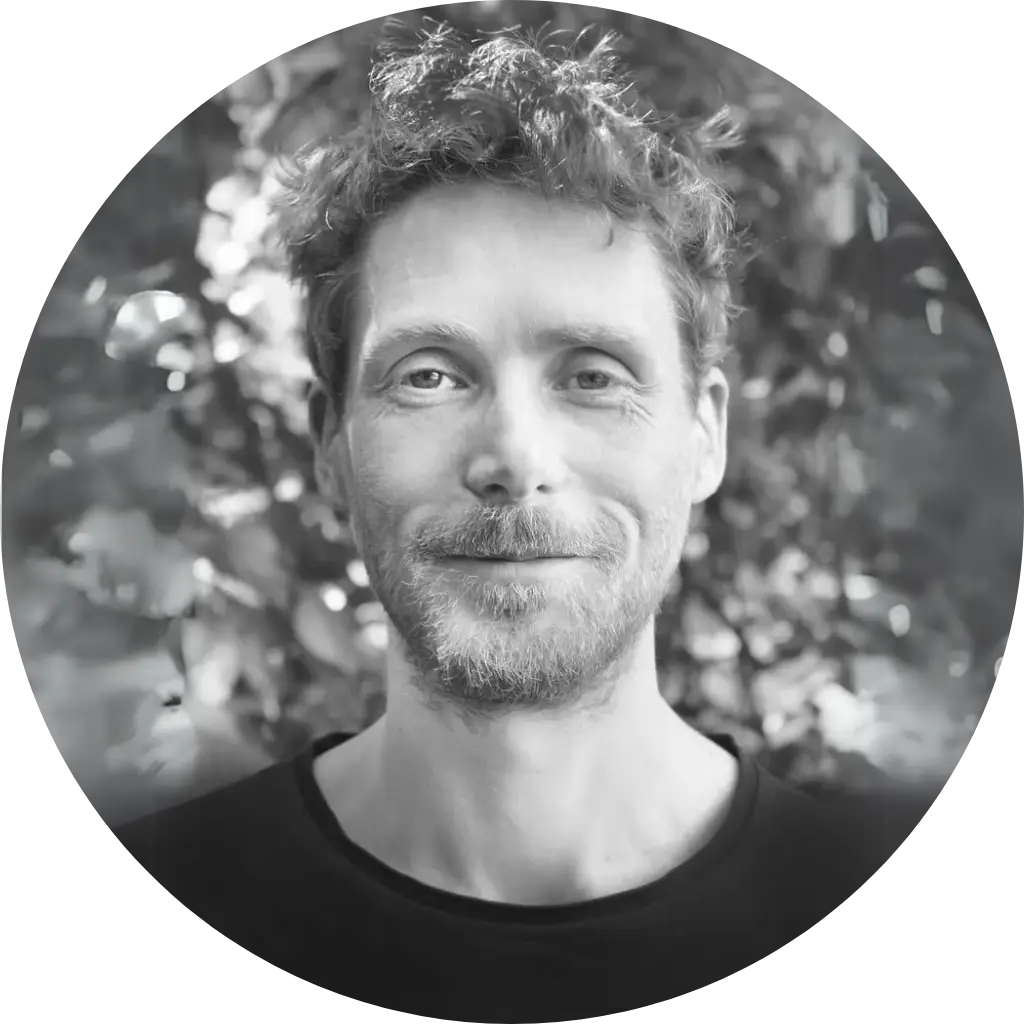
friday, September 5th | 11:00 aM
Session 1 | room "NARYANI" [TRIPURA 3]
Via Somatic Resonance the therapist uses their whole being as a ‘tuning fork’ to receive and resonate with unconscious, unowned or split-off parts of the client’s inner world. It’s a powerful form of body-based empathic listening that requires a deep sensitivity, receptiveness and capacity for attunement. It can also bring with it many challenges and questions.
How do we sort out what’s ‘ours’ and what’s ‘theirs’? How do we open ourselves up to be touched by our client’s innermost experiences, while maintaining healthy self-boundaries and proper self care? How do we resource ourselves when encountering potentially overwhelming fragments of client experience? And how do we ‘offer back’ what we are picking up in ways that are digestible for the client?
In this experiential workshop we will come together to explore what it means to tune in deeply to ourselves as a means to tuning in to the other – making embodied explorations individually, in pairs and as a group.
We will also explore and discuss how to translate the information we receive into therapeutically useful interventions, and briefly clarify distinctions between different forms of non-verbal communication in therapy, such as transference, countertransference, projective identification and somatic resonance.
“Playback Theater: The Body, The Mind and In Between”
JEANNETTE Eichner, GERMANY
With a Master of Arts, Jeannette Eichner has dedicated her career to trauma-focused therapy and holistic healing. She has worked in various clinics, gaining extensive experience and refining her approach to integrate creative tools such as art therapy, theater therapy, and body psychotherapy. Over the years, her methods have evolved to effectively support individuals in processing trauma and building resilience. Passionate about empowering others, Jeannette utilizes diverse techniques to help clients heal, grow, and explore transformative possibilities for personal development.
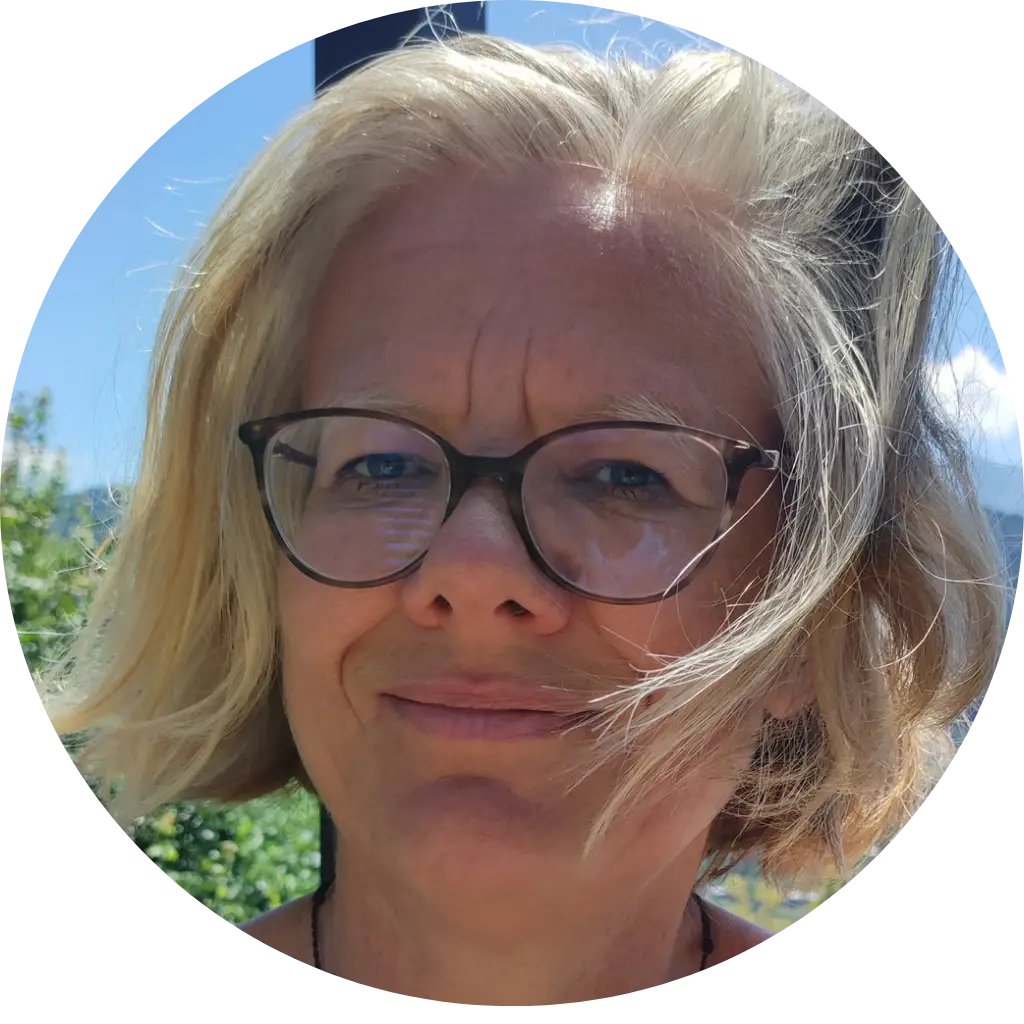
friday, September 5th | 2:30 PM
Session 2 | room "GITA VIDYA"
This workshop invites participants to explore the deep connection between body and mind through creative storytelling and performance. Rooted in the fundamentals of Playback Theater, it emphasizes physical expression and mindfulness, helping participants strengthen the link between inner experiences and outward expression. The session begins with a warm welcome and an introduction to the practice, setting the stage for an open and supportive space. A guided mindfulness exercise encourages participants to tune into their bodies, fostering presence and spontaneity. Through movement-based warm-ups, they will awaken physical awareness and creative expression. As they experiment with key Playback techniques such as “Fluid Sculptures” and “Pairs,” participants will use movement and sound to bring emotions and personal narratives to life. As stories are shared, others will enact them in a playful and expressive way, offering fresh perspectives and deepening empathy. The session concludes with reflection and a shared creative movement, leaving participants inspired and connected through the power of embodied storytelling.
“Moving Between Knowing and Wonder with Developmental Somatic Psychotherapy (DSP) ”
JENNIFER BURY, USA
Jennifer Bury BFA is a Certified Developmental Somatic Psychotherapy (DSP) Teacher and Supervisor for The Center for Somatic Studies. She is also adjunct faculty at the Gestalt Institute of Cleveland, and a somatic therapist with 40+ years of experience in private practice, leading group trainings and facilitating study groups. She works online and in person, in the U.S. and internationally. In addition to her Gestalt training, her background includes a BFA in Dance from NYU, performing with her own dance company, as well as studies in pre-med, neurology, kinesiology, dance, martial arts, and numerous somatic methods. For more see: www.jenniferbury.com
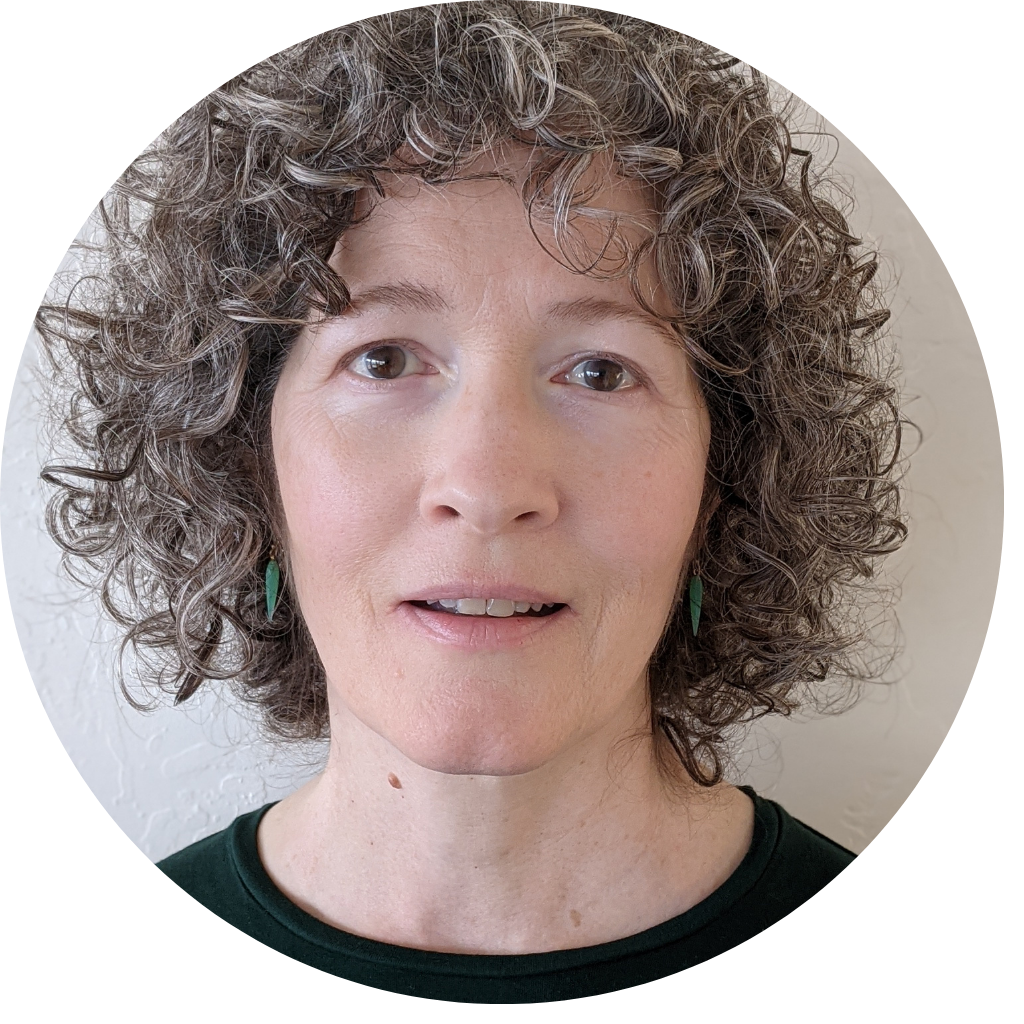

friday, September 5th | 2:30 PM
Session 2 | room "MAHAVIRA"
We all originally enter and orient to the world through movement. We wondered our way forward into the world, and formed our responses, and our way of being, along the way. Over time our curiosity may diminish and we may learn to reach for what is familiar in order to feel safe and certain. Through movement-based, relational explorations we will stimulate our kinesthetic attentiveness to the qualities which define the emerging experience of contacting. Instead of making meanings or interpreting, we will allow ourselves to encounter our sensory and movement responses as a way of coming to know the situation we’re living. In this way, hidden layers of the experience are revealed – we come to know what we feel though we might not be able to explain how or why it happens. Fortifying our courage for discovery, over the familiarity of assumption, is a therapeutic resource for somatic practitioners, coaches, and psychotherapists which requires the ability to discern how to act in relation to the unfolding situation. This workshop provides the territory to move beyond what we have imagined into the novelty of the co-created, wondering moment. Returning to this shared way of learning shifts us from feelings of isolation and fear, to belonging and curiosity for that which we do not yet know.
“Body-Mind Integration as a Healing Process Towards Themselves, The Others, The World”
luciano sabella, italy
Luciano Sabella, Functional psychologist-psychotherapist, carries out clinical activities at his studio in Florence, Italy. Member of the Sif since 1997, trainer and supervisor at the School of Functional Psychotherapy since 2003. EABP Board Member, member of AIPC. Author of clinical and epistemological publications. Creator and conductor of training and prevention projects. Speaker and conductor of numerous speeches and workshops at international meetings, including the EABP congresses of 2014, 2016, 2018, 2021 and 2023.
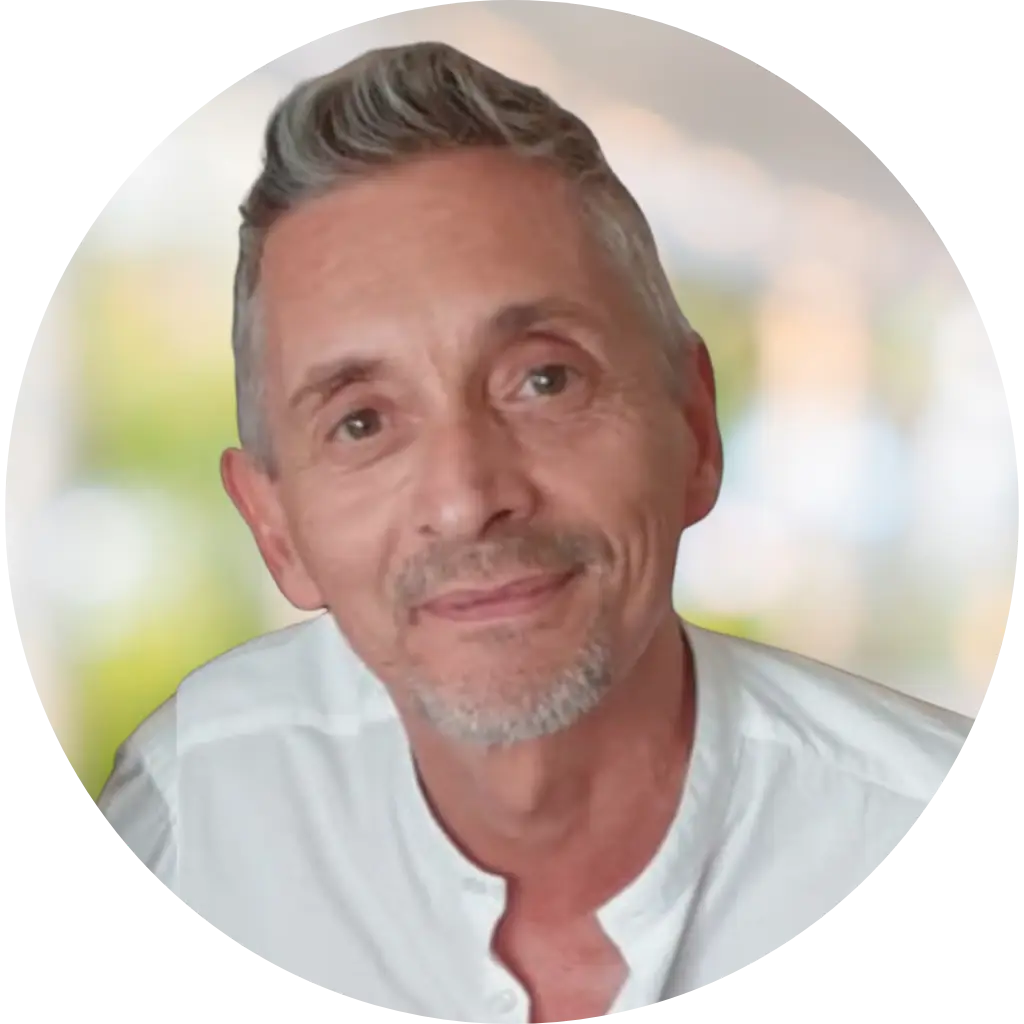
friday, September 5th | 2:30 PM
Session 2 | Room "VIDYANANDA"
A cohesive Self is the result of a full and harmonious integration of body and mind. Such integration is that which enables, among other things, a feeling and perceiving correctly of both self and others, without one’s own bias.
Deep contact with these capacities of ours, leads us in turn to feel and recognize at all psycho-body levels the real and deep (not induced) needs of each of us. Thus intimate connection with ourselves and others allows us to grasp our wounds, even the deepest ones, because we “feel” them and can approach them without more judgment or criticism. This is the way we can initiate the healing process that will lead us to experience full and deep psycho-body well-being.
After a brief introduction, through some techniques of Functional Psychology the workshop will lead participants to directly feel the connection with their own and others’ needs and the consequent possibility of directly intervening on them, in order to return to experiencing full body-mind well-being.
“Ecstasy and Grounding – When Heaven and Earth Kiss Each Other”
Frithjof Paulig, germany
Frithjof Paulig, born in 1967, studied educational science with a focus on sociology and psychology, earning the title of Diplom-Pädagoge. He later trained as an alternative practitioner for psychotherapy and became a certified body psychotherapist (DGK/EABP). His education includes training in Orgodynamics and transsystemics (Plesse/St. Clair), resonance NLP, systemic organizational development, and spirit and leadership at the Lassalle Institute. Additionally, he has experience with Zen, yoga, and shamanic ritual work, which inform his approach. He manages Orgoville – the Institute for Orgodynamics – where he works as a trainer in Orgodynamics, practices as an Orgodynamics therapist, and provides coaching and qualification for executives. His work focuses on the application of Orgodynamics in both therapeutic and organizational contexts.

friday, September 5th | 2:30 PM
Session 2 | room "MAITRI BHAVA"
This workshop offers an experiential journey that follows the orgodynamic approach. Participants will experience the interaction of the body, mind, emotional, and energy levels through a mindful presence process. The focus is on exploring the limiting effect of fixations in these different dimensions and finding out how awareness can open into a non-judgmental flow consciousness in movement. Life-joy and body-joy meet the transpersonal realm.
Guiding questions include: What is the relationship between ecstasy and grounding? And how can the trap of polarization be avoided?
The workshop begins with a short context talk, followed by exploration of core concepts through group or pair work. Participants will engage in body exercises, dance, energy work, and a short sharing.
The process supports trust in one’s unique essential impulses, the integration of spontaneous expression, grounding, and stillness, and an openness to the small ecstasies of daily life.
“Caught in the Flow of Life”
Sabine kemnitz & Joerg Clauer, Germany
Sabine Kemnitz is a psychoanalytic psychotherapist and concentrative movement therapist in private practice.
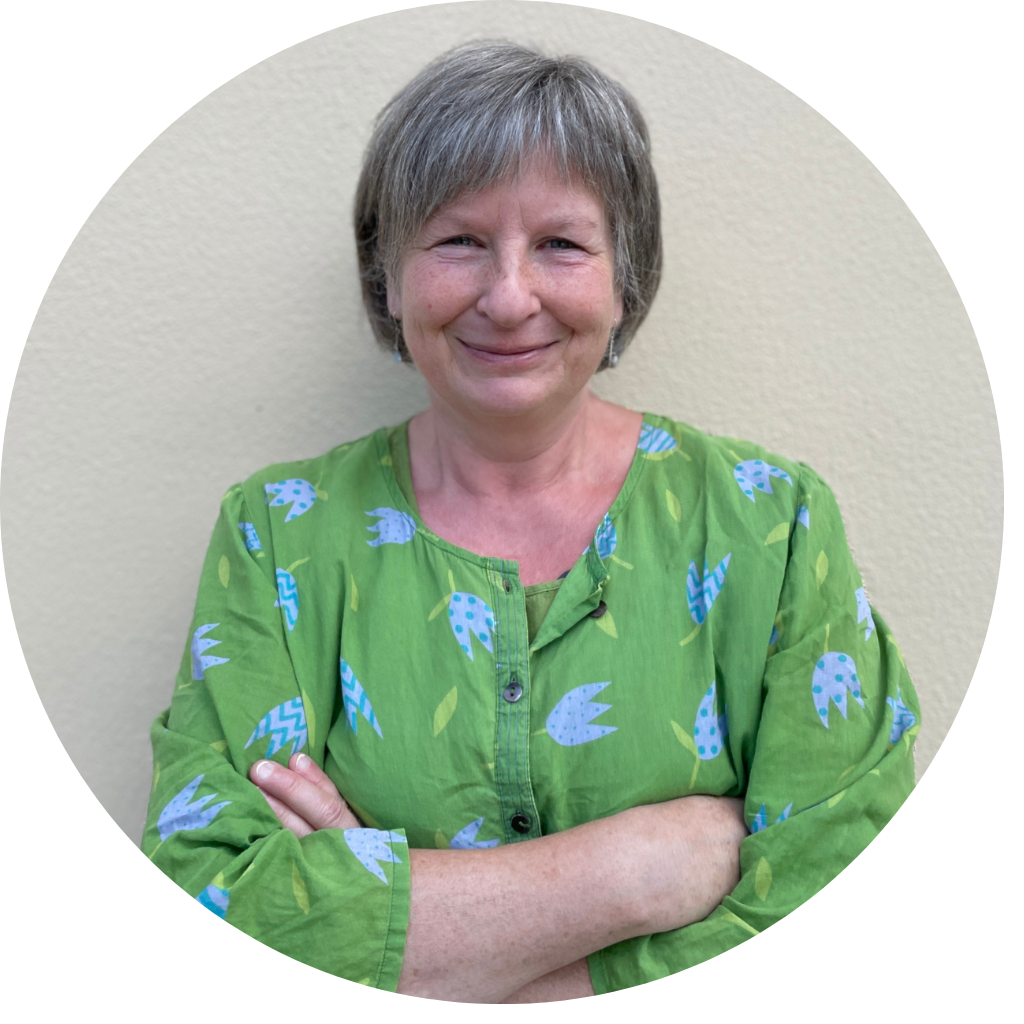
Joerg Clauer is a Certified Bioenergetic Analyst and faculty member of the International Institute for Bioenergetic Analysis (IIBA), with a specialization in psychosomatic medicine and psychotherapy, currently working in private practice. He has held managerial positions for many years in specialist clinics for psychosomatic medicine and is also trained and practicing as a psychoanalyst.
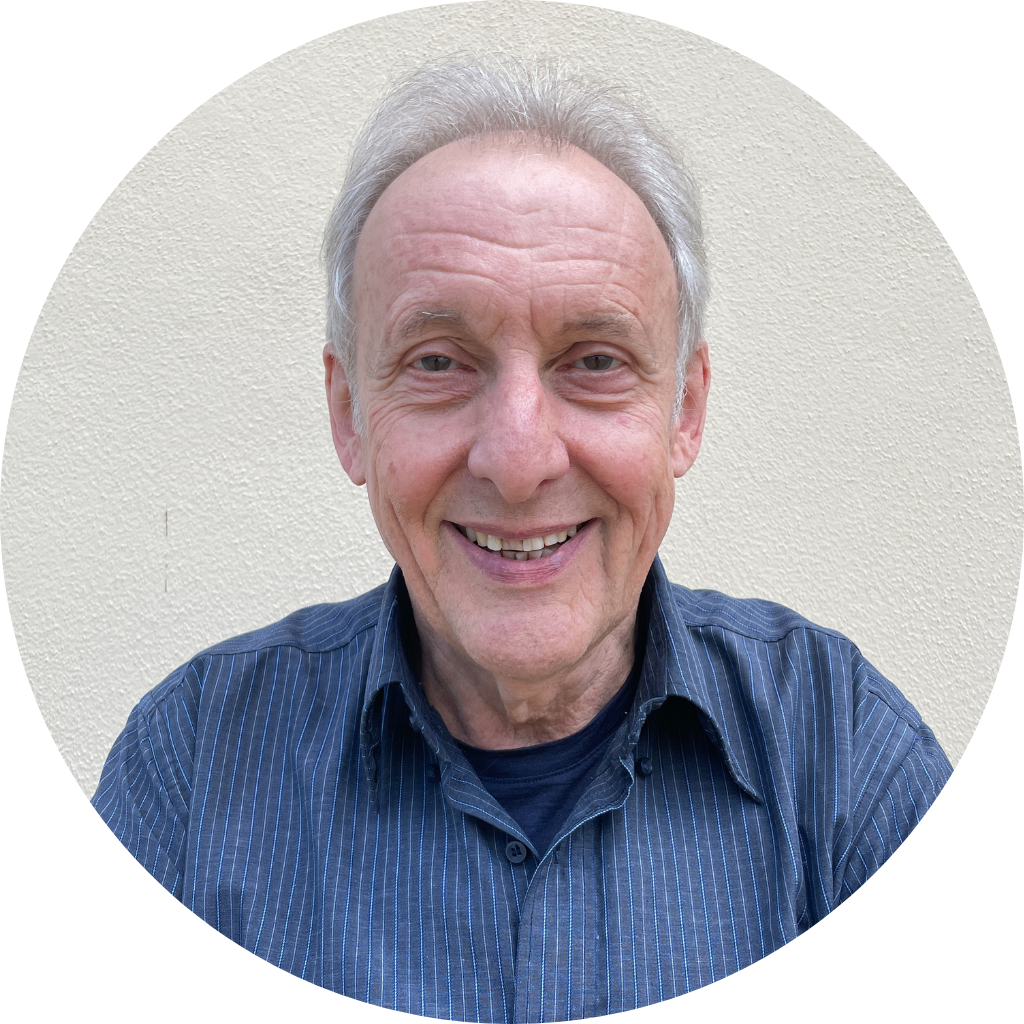
friday, September 5th | 2:30 PM
Session 2 | room "PRANAVA"
In all areas of life, we are inevitably embedded in an intersubjective dance — a continuous web of mutual influence and resonance. This experimental workshop opens the possibility of becoming more conscious of these subtle entanglements and learning to welcome them with curiosity and openness. Participants are invited to attune to their bodily experience and to observe how intersubjective resonance arises and unfolds in contact with others.
Drawing on methods from Concentrative Movement Therapy and Bioenergetic Analysis, the workshop offers structured yet fluid opportunities for embodied exploration. Through shared experience, a playful and supportive group field will emerge, inviting participants into deeper awareness of how they relate, respond, and are shaped within the presence of others.
”The Womb as First Home: Exploring Prenatal Bonding and Early Imprints”
DORIT GOEBEL, germany
Dorit Goebel, born in 1957, holds a Master’s degree in Social Work and Education. She has completed over ten years of specialized training in Biodynamic Body Psychotherapy (Speyer, Boadella, Boyesen). Through her work in various fields—including women’s shelters, alternative sentencing programs, and psychosomatic clinics—she has witnessed how deeply early life imprints shape the human experience. This insight led her to continue her training in pre-, perinatal, and transpersonal psychology (Grof, Terry), trauma therapy (Gattnar, Levin), and Bonding Analysis (Raffai). For the past 20 years, Dorit has maintained a private practice in Kassel, primarily supporting pregnant women, families, and parents with young children. Her focus is on creating the safest possible internal and external environment while facilitating the release of traumatic imprints.
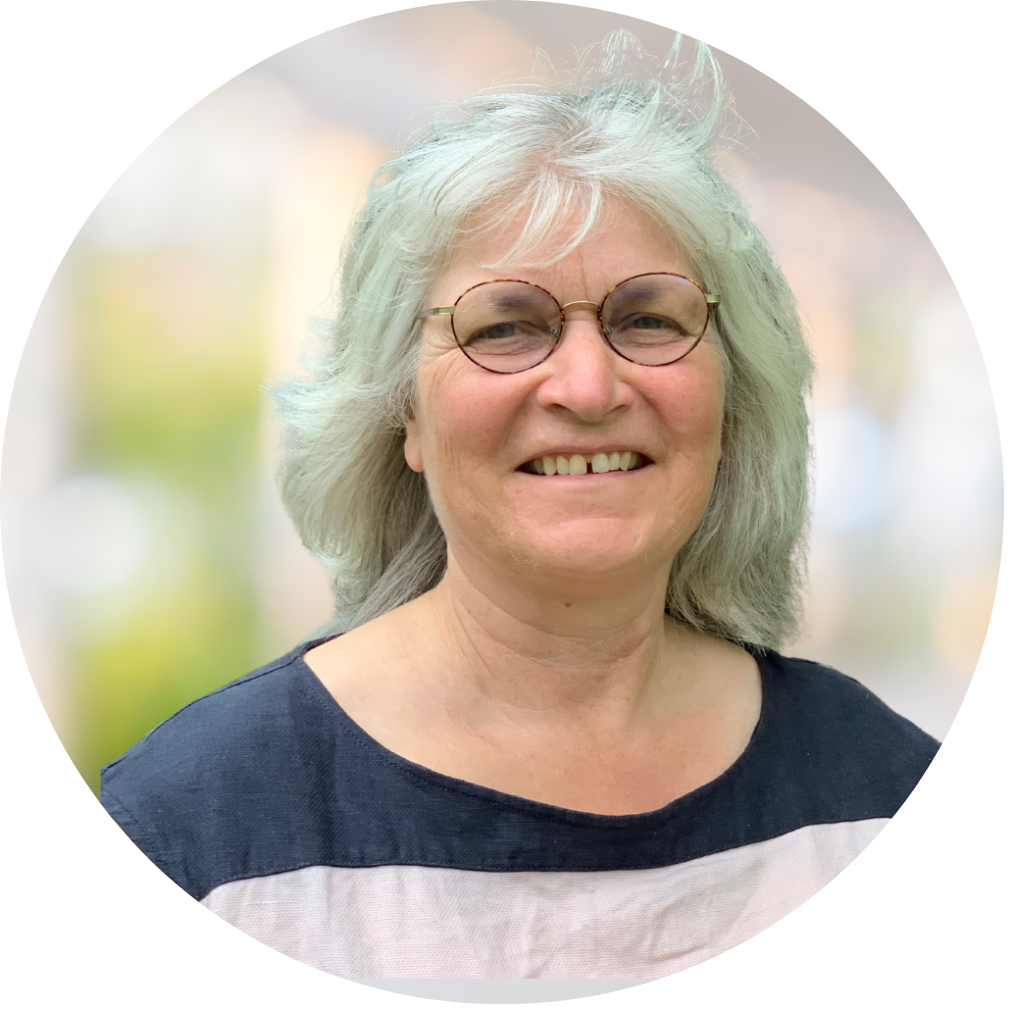
friday, September 5th | 2:30 PM
Session 2 | room "GAYATRI" [TRIPURA 1]
This workshop explores the stages of prenatal development for both mother and child. A method will be presented that supports the creation of imprints in the inner landscape and facilitates the transition to the outer world. By allowing the mother to witness the development of the fetus in the womb and the early formation of the child’s personality, prenatal Bonding (BA) can foster a deep emotional connection between mother and baby, enhancing both bonding and attachment.
This method, grounded in pre- and perinatal research, serves as a tool to empower mothers, families, and the unborn child. It supports the birth process and encourages the baby’s embodied presence from within the womb. As a result, children are often born with a strong sense of self-esteem and access to their inner potential.
Such bonding work can also contribute to the prevention and resolution of early trauma, including the effects of previous miscarriage, stillbirth, traumatic birth experiences, prenatal trauma in the mother, transgenerational trauma, and medically assisted conception.
The workshop offers an experiential introduction to the method through a self-exploratory process of embodiment and bonding. Participants will have the opportunity to connect with the experience of the womb as the first home of every human being. The human need for embodied presence, containment, and resonance—as found in a “social womb”—is essential not only for physical growth, but also for psychological development and integration into the world.
“Connecting with your power ”
federeica raso, italy
Federica Raso is an Italian psychologist and certified coach with over a decade of experience in individual and group development. With a Master’s in Clinical Psychology and advanced training in group dynamics, psychodrama, mindfulness, and somatic approaches, she has designed and led programs focused on emotional intelligence, communication and assertiveness. Federica has worked with international organizations, universities, and NGOs, supporting professionals, students, and leaders in building self-awareness, resilience, and purposeful growth. Her approach blends psychological insight with practical tools for real impact.

friday, September 5th | 2:30 PM
Session 2 | room "SHANTI DEVI"
Connecting with Your Power” is a 90-minute experiential workshop that invites participants to explore their personal relationship with strength — physical, emotional, and relational. Through a blend of playful fights, bioenergetic grounding, guided reflection, and meditation, the workshop offers a safe and dynamic space to reconnect with one’s vital energy, assertiveness, and capacity for healthy boundaries.
Inspired by somatic practices and psychological insight, the workshop helps participants explore how they express (or suppress) their inner force, how they respond to the strength of others, and how to cultivate a grounded, non-aggressive presence. The method draws from body-oriented approaches, emotional awareness, and authentic relating to support personal empowerment in a group setting.
The workshop is suitable for adults of all genders and backgrounds, and does not require any prior physical or psychological experience. It is particularly valuable for those seeking to reclaim space in their relationships, improve self-trust, or release internalized fears around power, conflict and presence.
“Where Movement Becomes Meaning" - Embodying The Maria Fux Method in Dance Therapy”
Sófocles Herácliton Virgolino Missias, BRAZIL
Sófocles Herácliton is a clinical psychologist graduated from PUC-GO, Brazil, working with a somatopsychic approach that integrates body and mind. He specializes in Transpersonal Psychology Centered on the Body (Instituto Serra da Portaria) and Dance Therapy (International Center Maria Fux). He also holds training in Human Systems Ecology, Brief Character-Analytical Psychotherapy, and Human Sexualities and Clinical Sexology from EsteR School (Spain). He offers in-person and online sessions and travels across Brazil with his therapeutic projects SENSAR – Pleasure Beyond the Skin and Dance Therapy – Maria Fux Method. He is the author of the web series Dance and Ecstasy.
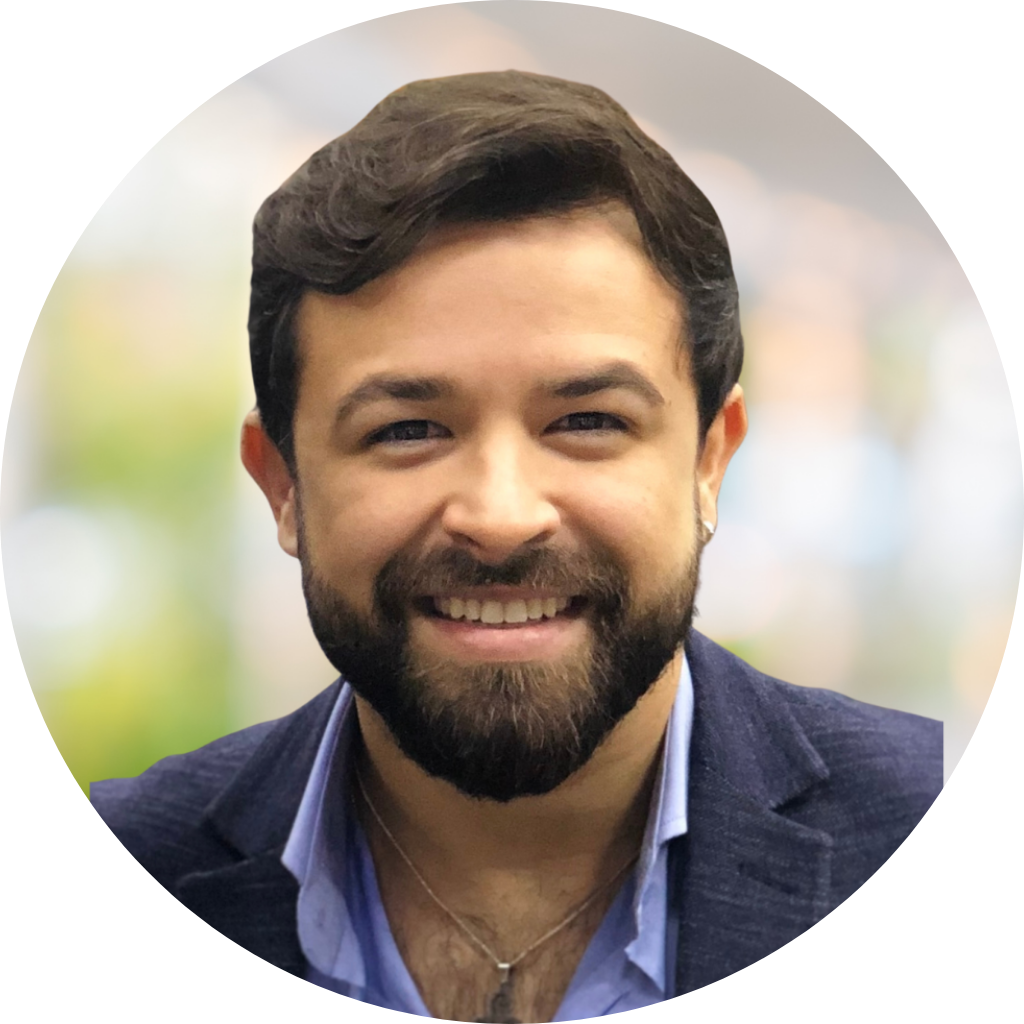
friday, September 5th | 2:30 PM
Session 2 | room "SUNDARI"
Dance Therapy, based on the Maria Fux Method, is an expressive body-oriented approach that integrates spontaneous movement, symbolization, and sensitive listening within the field of holistic health promotion. It is grounded in the idea that the therapeutic process occurs through the creation of bodily narratives, wherein the individual symbolically elaborates their experience through gesture.
The creative process is central to the practice, enabling the emergence of psychic content and the reconfiguration of emotional and relational patterns. The approach is not performance-oriented but values the authenticity of movement, respecting the rhythm and uniqueness of each participant.
Resources such as fabrics, newspapers, chairs, and natural elements (wind, earth, sea, stones) are used as symbolic and sensory mediators, promoting processes of expression, integration, and re-signification. Both musicality and silence are considered, facilitating self-regulation and bodily listening as pathways to the self.
“Body Psychotherapy: Dialectics of Body and Relationship Work At The Example Of Depression”
Manfred Thielen, germany
Manfred Thielen, Dr. phil., Dipl.-Psych., is the director and co-founder of the Institute for Body Psychotherapy Berlin (IfK). He leads training and advanced training groups in Body Psychotherapeutic Therapy (KPT) and has maintained a psychotherapeutic practice since 1982, working with both individuals and groups. He serves as a teaching therapist, supervisor, and lecturer in state licensing programs (TP, ST) as well as at universities such as SFU Berlin, the University of Greifswald, and Magdeburg-Stendal University of Applied Sciences. In the 1980s, he trained in Integrative Biodynamics with Ken Speyer, Clover Southwell, David Boadella, Ebba Boyesen, and Wolf Büntig, along with additional modalities within KPT. As a long-standing chairman and current board member of the DGK, he has actively advocated for the integration of diverse approaches within body psychotherapy. He therefore deliberately refers to his own work simply as body psychotherapy. Professionally, he has also been engaged for many years in the Berlin and Federal Chambers of Psychotherapists
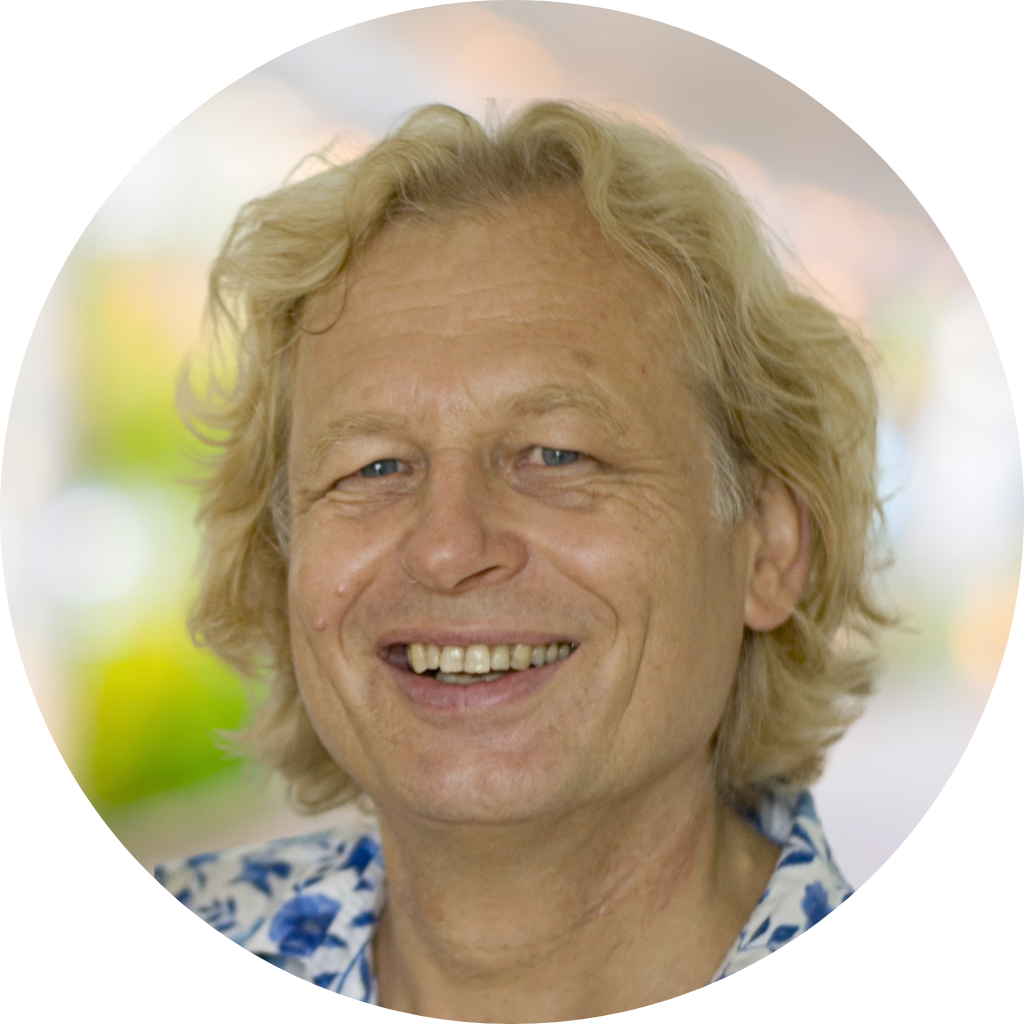
friday, September 5th | 2:30 PM
Session 2 | room "NARYANI" [TRIPURA 3]
At the example of depression to show my body psychotherapeutic approach. In outpatient practice, various forms of depression are among the most common clinical pictures. But quite a few of us also have depressive moods and feelings at times. Depressive symptoms are usually an expression of unresolved conflicts, deficits and unexpressed affects and feelings from childhood. Affective and emotional self-regulation is interrupted or disturbed, with aversive and particularly aggressive feelings playing a special role. The depressive problem also manifests itself in posture, facial expressions, gestures, breathing, etc.
In body psychotherapy, there are a number of methods and techniques for loosening or overcoming the depressive’s inhibition of aggression. They are integrated into a humanistic understanding of the therapeutic relationship.
In the workshop, various body psychotherapeutic interventions and techniques will be presented. After a theoretical input, there will be enough space for self-experience in the workshop.
“Bodypsychotherapy with horses: Restoring the Nervous System — One Breath and One Hoofbeat at a Time ”
Stefan ide, germany
Stefan Ide is a psychologist and licensed psychotherapist specializing in integrative body psychotherapy, horse-assisted psychotherapy and trauma therapy. Since 2020 he serves as the 1st Chairman of the German Society for Body Psychotherapy (DGK). He is a teaching therapist at the Institute for Body Psychotherapy Berlin (IFK) and a lecturer at Sigmund Freud University Berlin (SFU). Stefan leads the Centro Delfino practice in Berlin Charlottenburg as well as a health insurance-approved practice in Oranienburg. He lives in a small town in Brandenburg, Germany on a horse and cattle farm where he integrates body psychotherapy with animal-assisted psychotherapy, particularly working with horses.
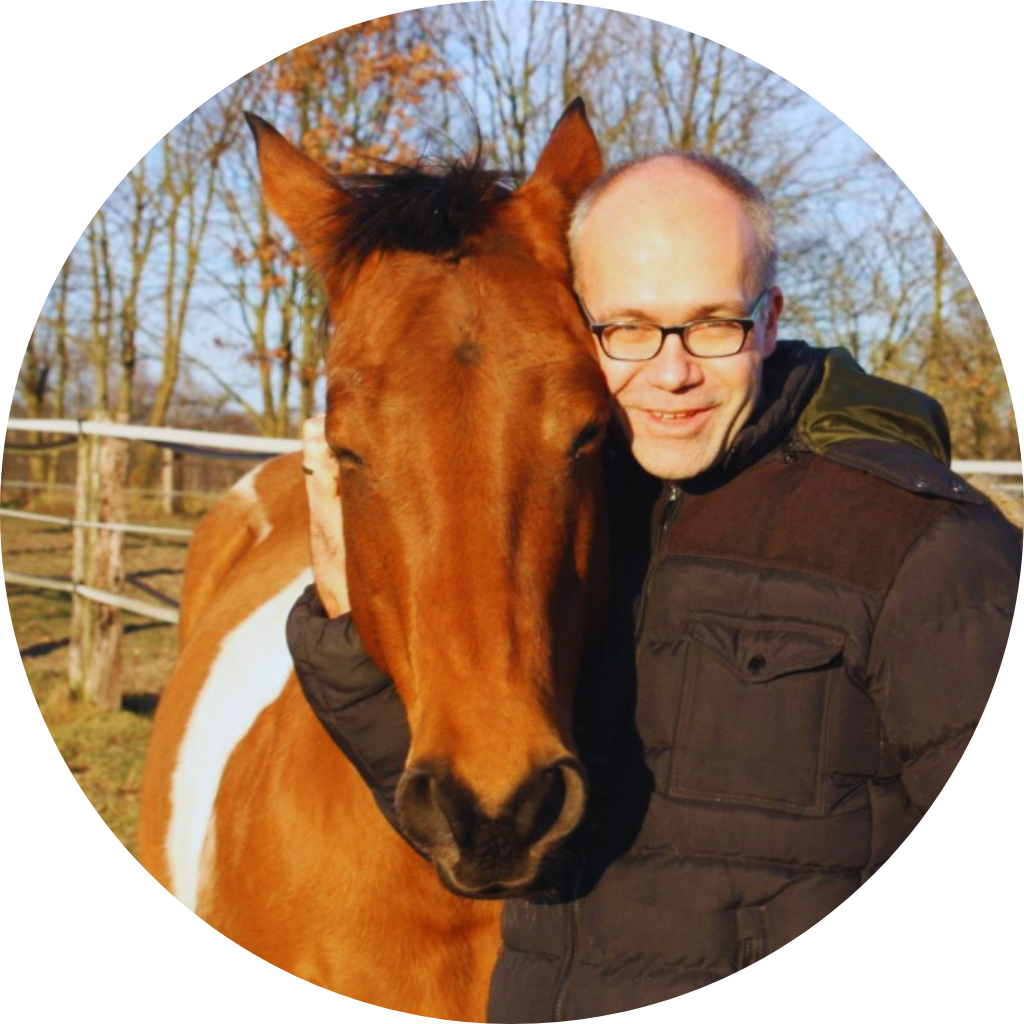
saturday, September 6th | 2:30 PM
Off-site location | 15 min walk each way – plan accordingly
An Introduction to Equine-Assisted Somatic Trauma Therapy
Discover how the powerful synergy of body psychotherapy and equine-assisted therapy can guide you into healing, embodiment, and reconnection with yourself. This workshop introduces equine-assisted somatic trauma therapy—a gentle yet profound approach that integrates neuroscience, somatic wisdom, and the quiet, grounding presence of horses.
Trauma doesn’t only live in memory—it imprints on the nervous system. Horses, with their natural sensitivity to energy and emotion, offer a unique and compassionate mirror. Through their presence, we can regulate our nervous systems, release held patterns, and remember who we are beneath the layers of stress.
In this experiential session, participants will engage in guided practices with horses, exploring nervous system regulation, boundaries, and body-based healing tools. Whether you’re navigating the effects of trauma or seeking a deeper relationship with your own body, this work offers a path toward safety, presence, and resilience.
Horses don’t just reflect our inner state—they help shift it. Healing doesn’t require re-living trauma. It requires a safe space, attuned connection, and the support to come home to yourself.
[IMPORTANT DISCLAIMER] This workshop will take place in an area outside the festival venue. All participants will have to go there on foot (25 minutes each way).
“ Equine-Assisted Somatic Practice: A Relational Approach ”
johanna scherf, germany
Johanna Scherf is a psychodynamic therapist in training with a specialization in body-oriented psychotherapy, equine-assisted therapy, and trauma-focused work. She has experience working with both children and adults and has a particular focus on intercultural psychotherapy and supporting individuals with refugee and migration backgrounds. She currently works in close collaboration with Stefan Ide in Berlin and Brandenburg, combining a psychodynamic approach with body psychotherapy and equine-assisted practice.
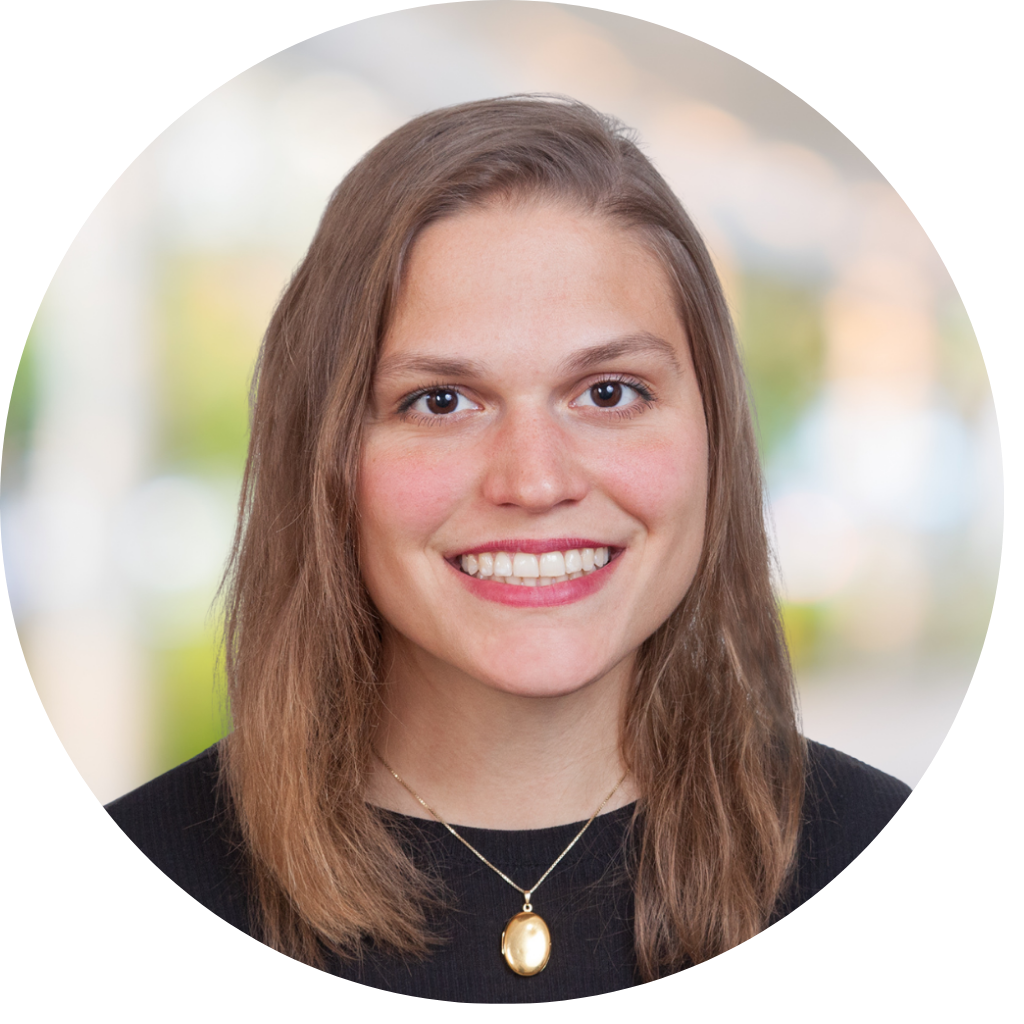
saturday, September 6th | 4:30 PM
Off-site location | 15 min walk each way – plan accordingly
In line with the workshop of Stefan Ide, this experiential workshop offers an introduction to equine-assisted somatic therapy —a relational, body-based approach that supports self-awareness, enhances emotional regulation and boundary clarity and a more attuned interpersonal engagement.
Horses respond directly to subtle shifts in human posture, intention, and affect. As sensitive and social beings, they provide immediate, embodied feedback—making visible patterns of communication and relational habits that often remain outside conscious awareness. In structured, non-riding encounters, participants will explore how these interactions can strengthen embodied presence and relational clarity, both personally and professionally.
This work does not involve riding or prior experience with horses. Instead, the focus is on cultivating a felt sense of connection, practicing nervous system regulation, and developing relational clarity through observation, interaction, and reflection. The workshop emphasizes experiential learning, offering a space for reflection and somatic integration.
“Psychodynamic Foundations of Bioenergetic Analysis”
CARSTEN HOLE & JENS TASCHE, GERMANY
Carsten Holle is a certified nurse and holds a degree in Communication Studies from the Berlin University of the Arts. He earned an M.A. in Counselling from the University of Canberra, Australia, as a DAAD scholarship recipient. Since 2009, he has been working at a psychiatric, psychotherapeutic, and psychosomatic care clinic specializing in the treatment of children and adolescents, where he has gained extensive experience in applying and developing body-psychodynamic approaches to this vulnerable and complex patient group. Building on this expertise, he has been leading self-awareness groups for trainee child and adolescent psychotherapists since 2018. As a licensed psychotherapist (Heilpraktiker) and certified TRE® Provider, Carsten also runs a private practice specializing in psychodynamically informed body psychotherapy.

Jens Tasche, a qualified social worker (FH) and Bioenergetic Analyst (CBT), has been working as a body psychotherapist for almost 50 years. After gaining experience as a social therapist in a juvenile detention center and as a research assistant at the Free University of Berlin, he has been working in his own practice since 1986. As a body psychotherapist, supervisor and trainer, he regards modern bioenergetics as a living psychodynamic in which physical-affective experience and psychodynamic based understanding intertwine in a vital, methodologically sound form. He has published numerous specialist articles in which he argues in favor of using the diverse theoretical approaches and schools of psychoanalysis as a scientific frame of reference for bioenergetics.

saturday, September 6th | 11:00 AM
Session 3 | room "GAYATRI" [TRIPURA 1]
Historically, Bioenergetic Analysis has been significantly influenced by Sigmund Freud’s early cathartic drive theory, Wilhelm Reich’s three-stage energetic understanding of healing, and Martin Buber’s philosophical understanding of the I-Thou relationship. In November of last year, the Psychosozial-Verlag published the book ‘Psychodynamic Foundations of Bioenergetic Analysis, which we edited. Beyond the historical roots mentioned above, the authors of this book see the theoretical corpus of contemporary psychoanalysis as the most important reference science for Bioenergetic practice today. Thus, in their essays, the authors address some of the most relevant issues in contemporary bioenergetic and body-oriented therapy. In particular, the categorical model of the distinction between traumatic, conflict-related and deficit-related mental disorders, as well as the findings of psychodynamic developmental psychology, developmental psychopathology and treatment theory are discussed. In this workshop, we would like to present some of the central ideas that emerged in the context of the book. We will be guided by two basic considerations: 1st, the essential task of body psychotherapy is to support clients in being able to affectively and cognitively perceive, tolerate and consciously accept the reality of their past and present. 2nd, (almost) all mental disorders are essentially caused by deficiencies in the regulation of affects and relationships – a finding that is now widely accepted across psychotherapeutic schools. The workshop presents examples of different treatment approaches for the categories of “trauma”, “conflict” and “deficit”, which allow for a differentiated understanding of Bioenergetic body psychotherapy processes. The traditional Reichian concept of ‘liberation’ and Bioenergetic character theory will be complemented by a concept of maturation and healing that is more strongly oriented towards modern psychodynamic models of development and disorder. After a theoretical introduction, the practical part of the workshop will involve trying out and discussing various exercises relevant to each category of disorder:
- Trauma-related exercises for creating a safe space
- Relationship-related exercises to work on pathological attachment patterns
- Conflict-related exercises for activating and analyzing phantasmal-psychic reality (including working with fear of annihilation, loss of mother, loss of mother’s love, and castration anxiety).
- structural exercises to promote the maturation and development of psychic competencies for regulating affect and relationships.
“Dance Therapy Elements for Clients with Lack of
Supportive Experiences in Early Childhood
”
Caroline BIem, Germany
Caroline Biem is a certified dance therapist and trainer BTD (Berufsverband der TanztherapeutInnen Deutschlands), a certified trauma pedagogue DeGPT and a social worker B.A. From 1995 to 1999 she worked in a pedagogic setting with children with developmental disorders. Since 1999 she has worked in a clinical therapeutic setting with adult clients of various psychiatric and psychosomatic diagnosis. For nine years she worked with mothers and children with birth trauma or post- partal depression using elements of the KMP (Kestenberg-Movement-Profile), a special dance-therapy-method which uses e.g. primal natural body rhythms to make contact with the clients and to enhance self-regulation processes. Since 2010 she has specialized in her clinical work and her private praxis on patients with complex PTSD and attachment trauma. Here the KMP is combined with trauma-relevant exercises and with dance-elements from different cultures.
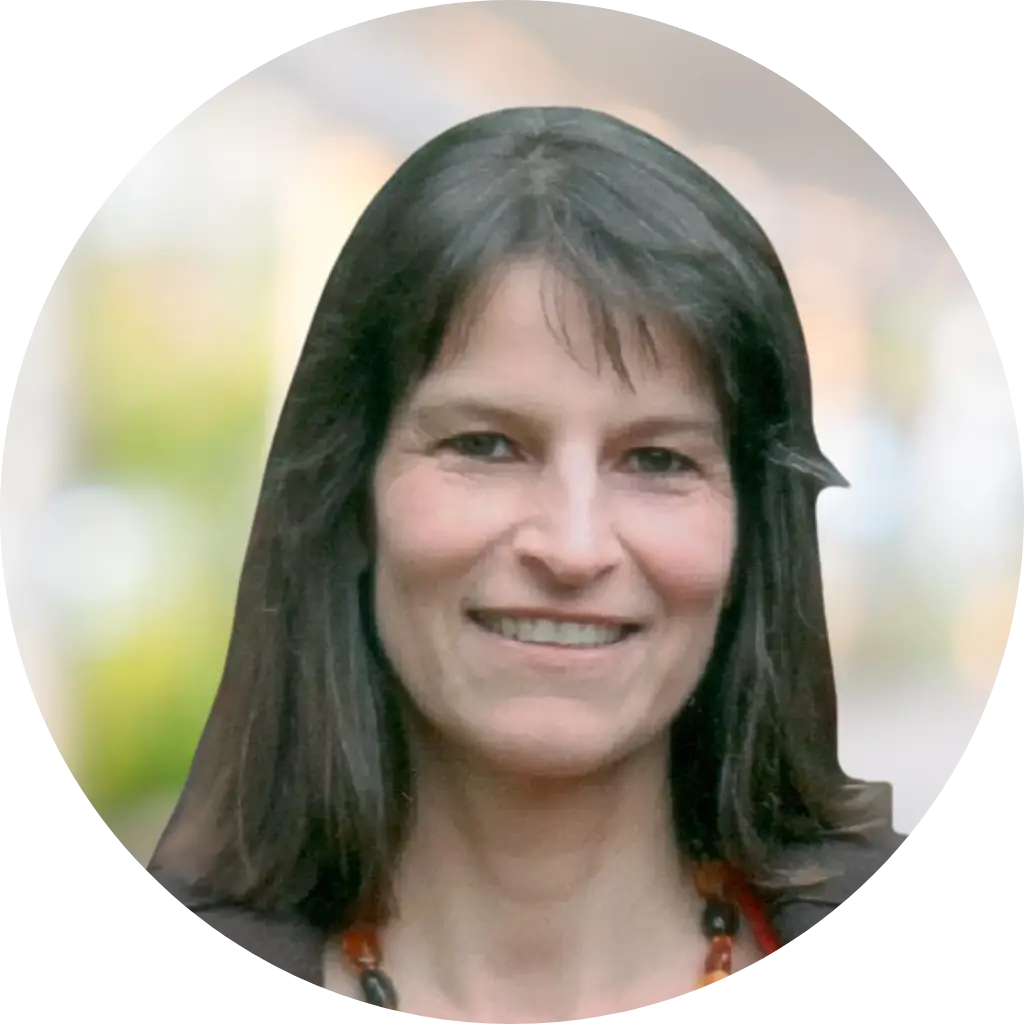
saturday, September 6th | 11:00 aM
Session 3 | room "SUNDARI"
Dance therapy uses dance elements and movement exercises in a creative way to enhance emotional, cognitive and social abilities of human beings of every age and with or without handicaps.
This workshop gives insight into the practical experience of the possibilities of working with easy dance steps and rhythm-elements in groups. The exercises invite one to feel lively and let the body-wisdom work. They offer a chance of being in harmony with oneself and the group members. Dance and rhythm can provide good support to activate resources and the emotional and developmental processes by giving the opportunity to regulate tension, to enhance self-regulation abilities, to enable the experience of the feeling of harmony and to discover new forms of contact and communication.
There is also the possibility to experiment with exercises to enhance psychological boundaries by using rhythm and dance and to try out in a playful way variations of set boundaries in rhythm or dance exercises. Being in an off-beat variation or in a complementary or contrasting movement with a group member can activate self confidence, self awareness and self efficacy.After some practical exercises we share personal experiences of the group members and discuss the possibilities and the relevance in particular for clients with lack of harmonious supportive experience in early childhood.
“Echoes from Within: Exploring the Voice in Body Psychotherapy”
Juliane Müller-Molenar, germany
Born in 1980, Juliane Müller-Molenar has been working with psychiatric outpatients as a social worker for 20 years. In 2010 she began her voice training education in the "Lichtenberger Methode," a specialized approach to working with the voice that focuses primarily on how it resonates within the body rather than solely on vocal exercises. She has been teaching this method ever since. In 2019, she started training at the "Institut für transformative Körperpsychotherapie" in Berlin with Bettina Schröter and Wolfgang Hegenbarth. Body psychotherapy appeared to be the ideal way to integrate her two professions. Currently, she integrates emotional processes into her work with some of her voice students and has begun seeing her first clients in body psychotherapy, focusing on both the body and voice.
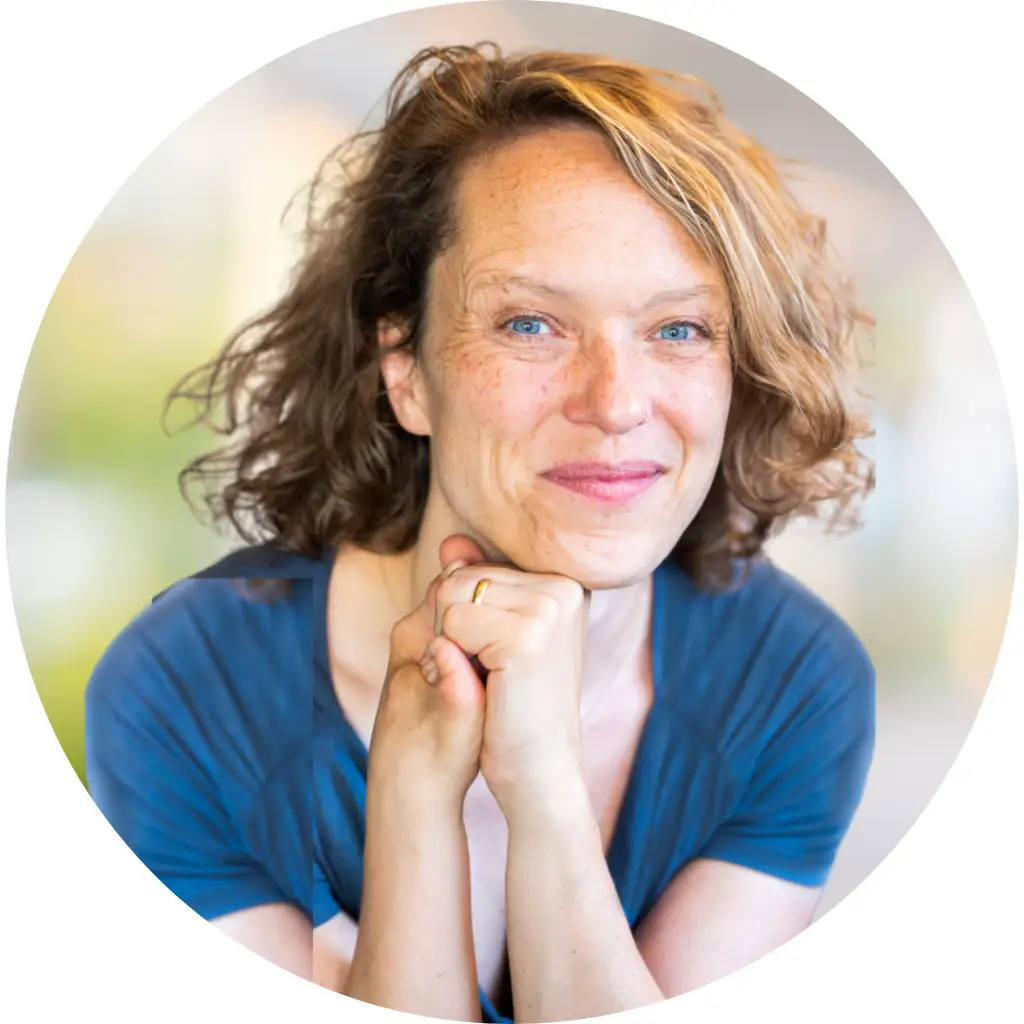
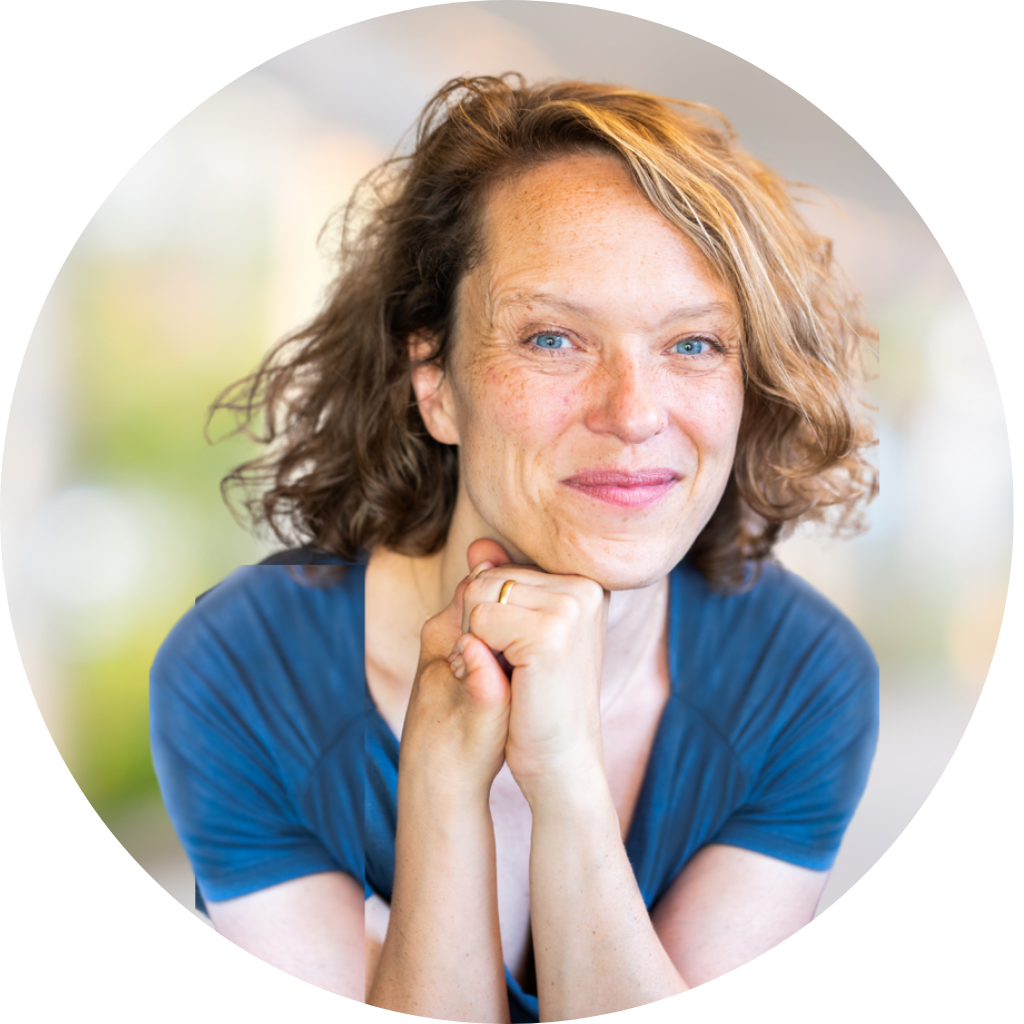
saturday, September 6th | 11:00 aM
Session 3 | room "NARYANI" [TRIPURA 3]
Our voice is our most familiar way of expressing ourselves and connecting with others, yet communication is often reduced to its intellectual content. Working with the voice can add a rich and engaging dimension to body psychotherapy methods.
In this workshop, we will explore our voices in various ways, examining how the speaking voice can affect others—whether inviting and calming or stressed and demanding—and working with sounds such as sighing, giggling, yawning, and animal noises to explore their impact on the body and emotions.
We will allow space for silence, investigate where in our bodies we can speak from and where sound can resonate, and explore vocal expressions of emotion alongside their effects on the body. Since the larynx is primarily innervated by the parasympathetic nervous system, we will also consider how working with the voice can induce a state of vivid relaxation or even trance, supporting a deeper connection to the subconscious. Through humming, singing, and creating rhythm together, we will listen not only with our ears but with our whole bodies.
The workshop will include both large group work and smaller exercises in pairs or groups of three.
“Aggression Dialogue Work Using Dialogue-based Confrontation to Develop Aggression as a Resource”
Thomas scheskat, germany
Thomas Scheskat, born in 1956, holds a Master’s degree in Education and has accumulated extensive training and experience in the field of psychotherapy. With over 10 years of specialized training in Biodynamic Body Psychotherapy (Speyer, Boadella, and Boyesen, he is a member of the EABP and holds an ECP certification. In addition, Thomas has been trained in the Hakomi (H. Weiss) and has pursued further studies in various approaches to Body Psychotherapy (W. Büntig and M. Aalberse). His professional development also includes specialized training in therapy for sexual offenders and DBT. With 23 years of leadership experience at a forensic-psychiatric state clinic, Thomas has dedicated the past 30 years to offering aggression balance training for both men and mixed groups. His broad and diverse training, combined with his leadership experience, has made him a well-rounded professional in the field of psychotherapy and therapeutic training.
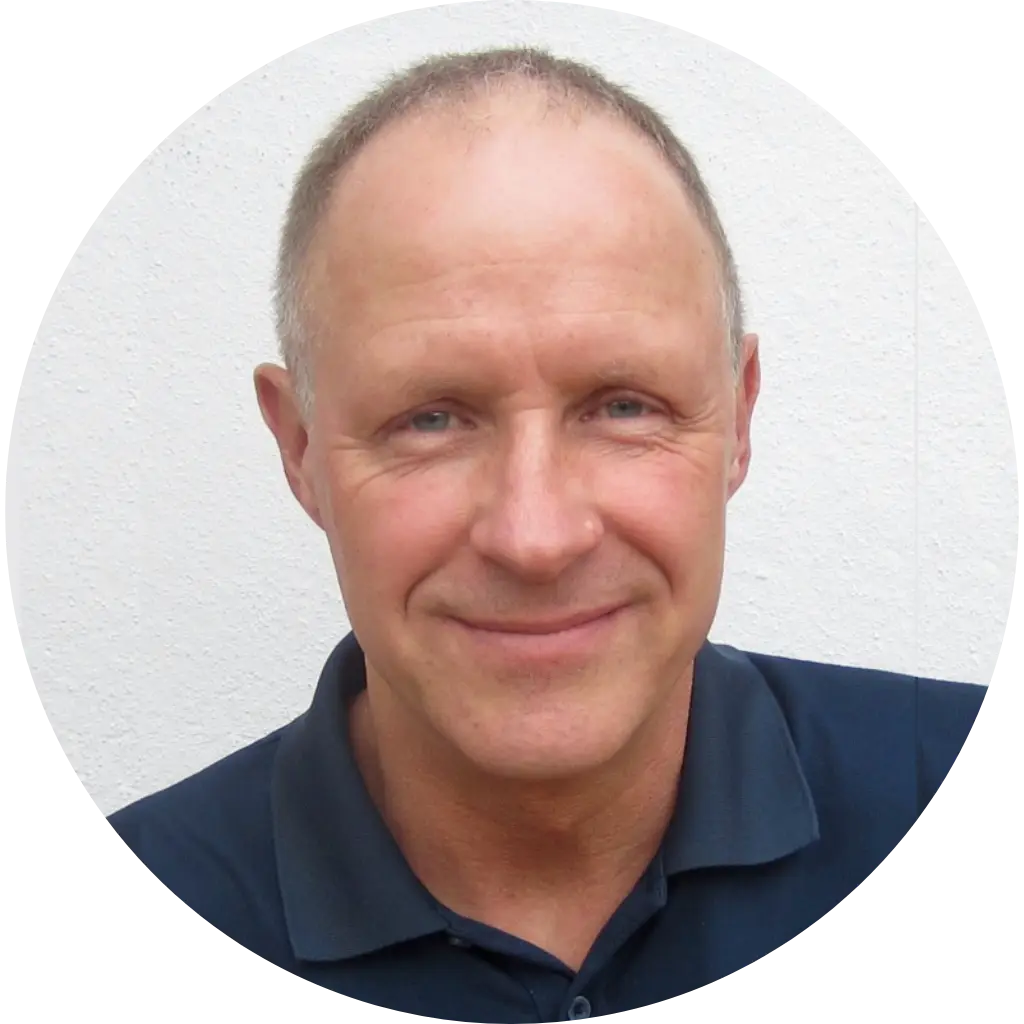
saturday, September 6th | 11:00 aM
Session 3 | room "SHANTI DEVI"
A healthy attitude to aggression plays a key role for our entire personal development. This must include both the fruitful as well as the harmful aspects of aggression. For the therapeutic access to both sides, we use a pragmatic model of decontaminated aggression on one hand in contrast to a contaminated one on the other hand. We explore this subject in settings of „dialogical confrontations“ by which we`re aiming for the transformation of violence. This means using body- and contact-exercises to distinguish between suppress and channeling one´s own aggressive force supportive to our personality, health, and fairness with others.
Participants of our groups and single work report back often going through a transformative and encouraging process. Therefore, they incorporate the idea of distinction between destructive and constructive aggression in their relationships. It becomes more and more important to take position while balancing one’s own rights, responsibly and the contradiction between consideration and impertinence. It mirrors the political conflict between pacifist and militarily solutions to insure human rights
“The embodied visceral core-self - a hands-on session ”
Siegfried Bach, germany
Siegfried Bach, a practicing biodynamic psychotherapist for over 40 years, has worked extensively with patients, groups and in training other therapists. He founded the bioZEN center for biodynamic psychotherapy in 1992 and cooperated in developing the curriculum with Gerda Boyesen, the founder of Biodynamic psychotherapy. He also got a degree in Psychology and worked in a clinic for chronic pain patients for six years. He has done research on the parasympathetic reactivity under emotional conditions. His mission is spreading the knowledge about the visceral core self while maintaining a firm ground in scientific and clinical psychology.
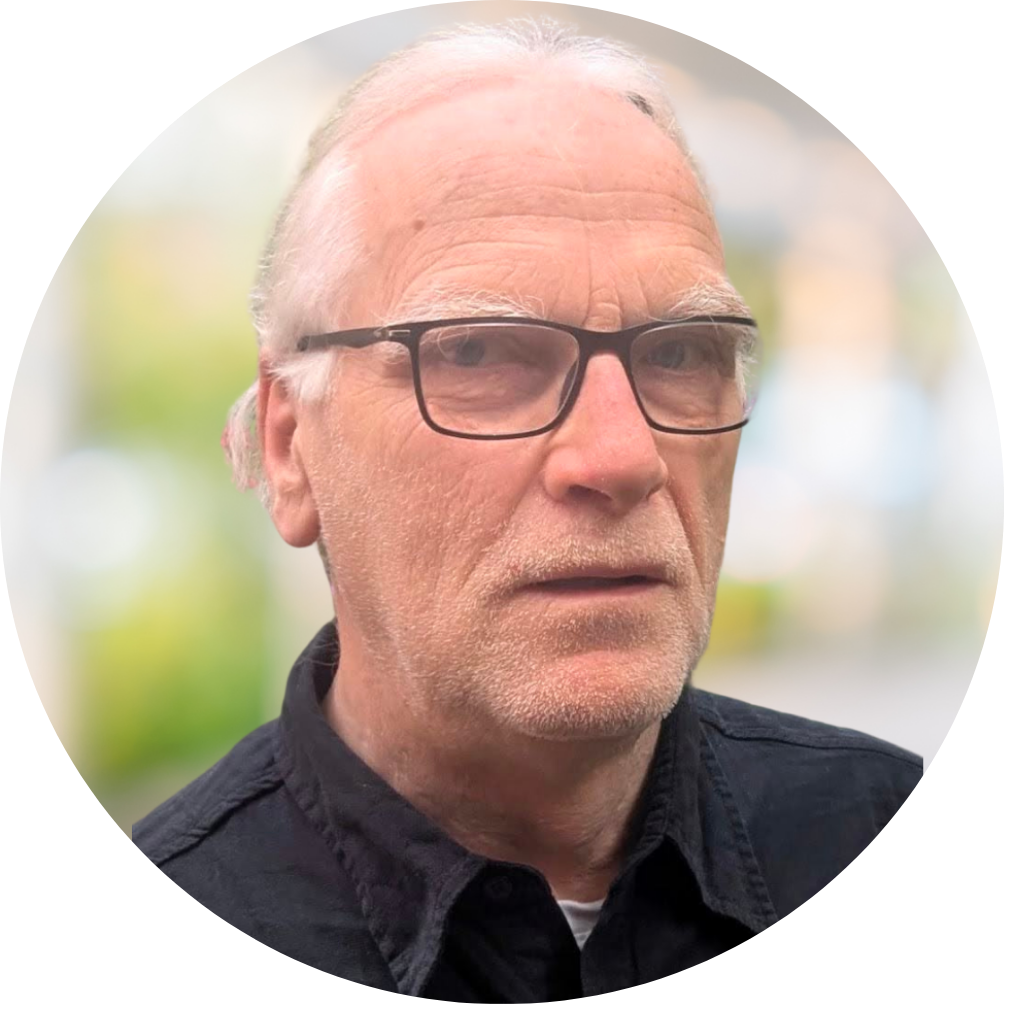
saturday, September 6th | 11:00 aM
Session 3 | room "GITA VIDYA"
In this workshop, after the theoretical model is presented first and participants will be guided through practical exercises from the manual.
The model offers a new understanding of the mind and social challenges, much like the embryonic triploblast design advanced life’s evolution through specialized, interacting agents and spurred social cooperation. It details the complexity of human phenomena, illustrating the functional dynamics between their components. This model demonstrates how the gut orchestrates fundamental moods, acting as more than just an information source, a perspective often overlooked by research, that reduces the psyche to neuronal processes.
Based on this model, I have developed a clinical manual for structural strengthening. This manual will utilize a variety of body methods, mentalization, and social interaction to safely and effectively strengthen deficient ego functions. A key biodynamic objective is to cultivate tolerance to oceanic streaming during deep relaxation. This goes beyond Gerda Boyesen’s “independent sense of well-being,” which is crucial for overcoming anxieties like pleasure-anxiety. It also addresses the profound human need for connection and security, a driving force behind mythological narratives, as described by Otto Rank. This deep yearning often remains unfulfilled, particularly in cases of early trauma.
All are welcome to experience this, from newcomers to seasoned clinicians.
“The Power of "Becoming" - Explore the Benefits of Conscious Breathing in Body Psychotherapy ”
Sandra heuschmann, germany
Sandra Heuschmann is a naturopath who has run her private practice DEINRAUM since 2002, working with Breath- and Body Psychotherapy, Hypnotherapy, and Psychosomatic Sound Healing (®Peter Hess). She discovered conscious breathing during her training at the "Institut für transformative Körperpsychotherapie" in Berlin in 1998, a formative experience that made breathwork a core element of her therapeutic approach. Sandra primarily works with individuals dealing with depression, addiction, PTSD, and stress-related conditions. She regularly leads self-awareness workshops and an annual breathing retreat in Andalusia. From 2015 to 2021, she worked in a psychosomatic clinic, where she deepened her understanding of breath- and body-oriented methods in clinical care. She lectures at IEK Berlin, is a guest lecturer for Alchemy of Breath, and collaborates with Potential Project to bring mindfulness into workplace culture. Sandra is a member of DGK, BINTA, and IBF.
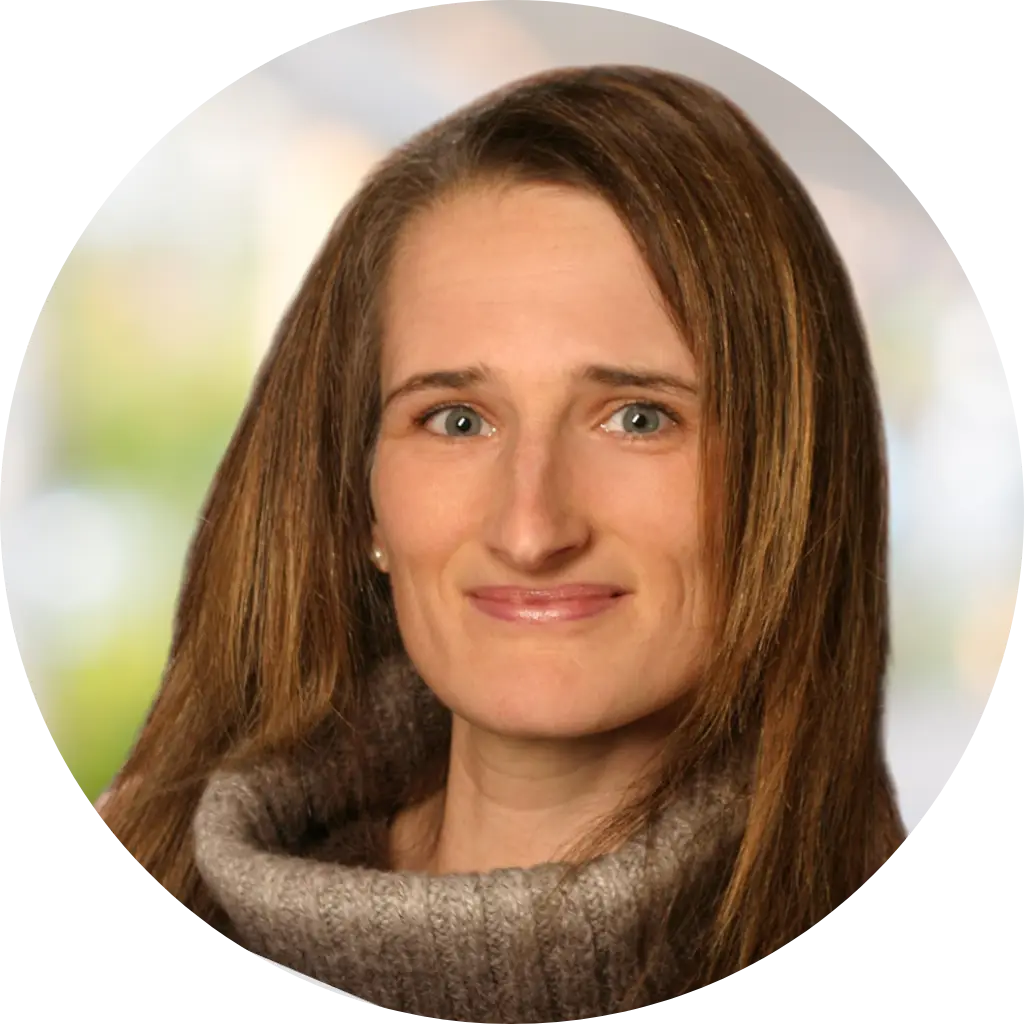
saturday, September 6th | 11:00 AM
Session 3 | room "MAHAVIRA"
This workshop invites participants on a personal inner journey through conscious breathing. It offers space to explore what lies beneath layers of identification and inner patterns. Participants are invited to feel how we are all connected through the breath, and how the breath can also serve as a conscious link to the spiritual source within.
The workshop also explores how conscious breathing can support healing in the context of post-traumatic stress, stress-related illnesses, and emotional wounds that have changed the way we breathe—often stored in the body as somatic memories, even many years later.
Through felt sense meditation, we anchor ourselves in the body using conscious breath. We open to whatever wants to emerge—inner perceptions, bodily sensations—and give them our full attention by naming them. The practice helps us transcend rational analysis and avoid judgment. Everything is allowed to be exactly as it is in this moment. This loving attention can create space for energies to move or even be released.
Sensations are the language of the body and portals to a deeper wisdom within. In felt sense meditation, we learn to listen to that inner wisdom again—and to apply the messages it holds in a meaningful way in our lives.
“Connection Through Clay”
sascha despotova, bulgaria
Sascha Despotova lives in the UK since 2011 and thrives on multiculturalism! She has gained professional qualifications in hypnosis, regression therapy, Hatha yoga and pregnancy yoga, alongside a continuing corporate career. Sascha is currently completing her studies in the Bulgarian Institute for Neo Reichian Analytical Psychotherapy, furthering her understanding of how emotional patterns find expression in the body. In her therapy practice, Sascha enjoys using various forms of art as a soft and playful way of connecting with the subconscious, thereby easing the process of exploration and change.

saturday, September 6th | 2:30 pM
Session 4 | room "MAITRI BHAVA"
Sure, we’re aware of the differences between us—whether individual, cultural, religious, or otherwise. Sure, there are social and institutional initiatives attempting to bridge the gap between individuals and cultures. But how open and willing are we to connect? Bringing the responsibility, ownership, and creative potential back to oneself—how do I govern the “Queen/Kingdom of Me,” and how do I relate to others?
In this safe space, we will use our sense of touch to explore connection: both with oneself and with others. What does this concept mean to me? What hopes and fears does it awaken? Do I feel sufficiently in touch with my inner world? Am I satisfied in my relationships with others? If not quite, am I ready to move one step further in my desired direction? And if I’m indeed perfectly happy where I already am, am I willing to be there for others?
Prepare to switch off your sight and analytical mind, and switch on your sense of touch in your hands – both in giving and receiving. After an initial exploration of the physical sensations and their reflections on our psyche, we will move on to create our desired future state in a little clay figurine. What will unfold for you? Come, let’s dive deep and explore together!
“Feeling & Expressing: Releasing Emotion Through Body and Voice”
Somesh Valentino Curti, italy &
Tessa Curti-Nagtegaal , the Netherlands
Somesh Valentino Curti is a clinical psychologist, Humaniversity sex counselor, and Sexuality in Connection trainee. His work combines psychology, emotional release, and meditation to support self-awareness and healing. He began his career in Turin, Italy, working with addiction recovery and migrant support. Later, he facilitated therapy and meditation in Osho centers in India and Greece. Now based in Amsterdam, Somesh runs a private practice and co-leads Emotional Release Workshops. His approach draws from body-oriented therapies like Bioenergetics, Encounter, and Osho meditations, with strong influence from Advaita Vedanta.
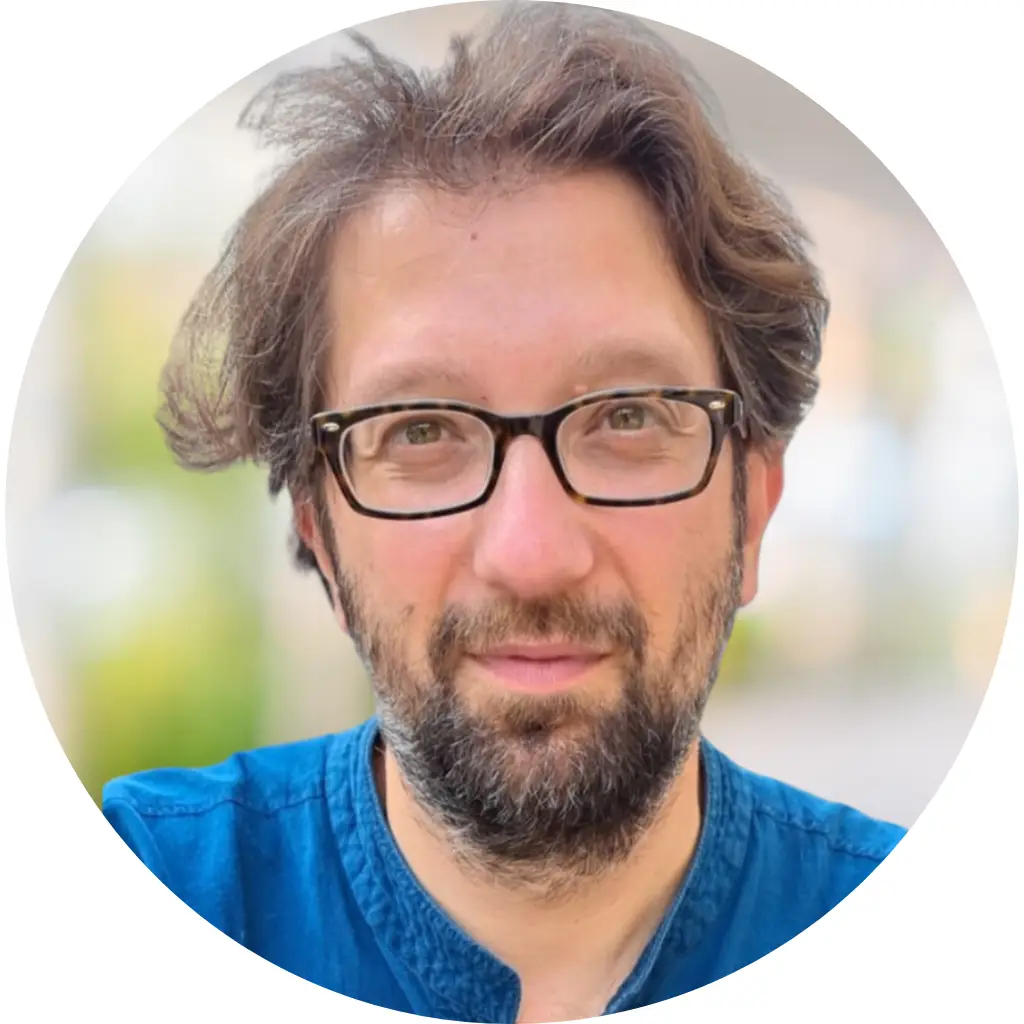
Tessa Curti-Nagtegaal is a certified holistic coach, psychosocial and relaxation therapist. Since 2012, she has co-led Emotional Release Workshops with Somesh Valentino Curti, offering an embodied approach to healing. She integrates inner child work and somatic practices to help clients reconnect with emotion and body. Alongside her training, Tessa has explored mysticism, meditation, and dance. Practices like Sufi whirling and tantric movement shape her view of the body as a vessel for transformation and self-awareness through movement and release.
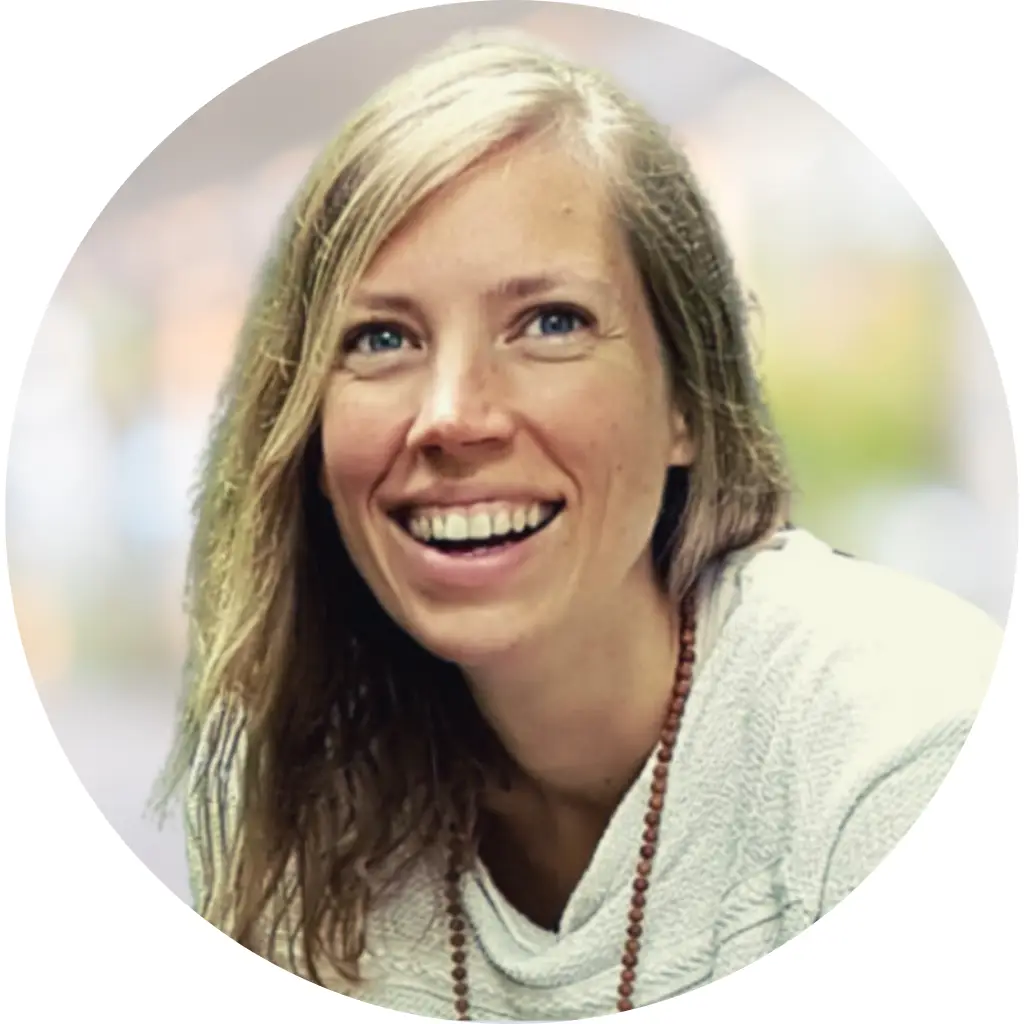
saturday, September 6th | 4:30 pM
Session 5 | room "NARYANI" [TRIPURA 3]
Emotions live in the body, shaping the way we breathe, move, and relate to others. When we are unaware of where emotions are stored somatically, accessing or releasing them can feel difficult or out of reach.
This workshop draws on principles from body psychotherapy and somatic self-awareness to support participants in shifting attention away from cognitive processing and toward direct bodily experience. The goal is to create space for authentic emotional contact and potential release.
We begin with a guided somatic exercise that helps participants attune to their bodily sensations and recognize where and how emotions are held. From there, the voice will be introduced as a natural extension of the body—a medium for emotional expression through sound. Whether soft or loud, vocal expression will be used as a grounding and releasing tool, allowing participants to explore their internal states without interpretation or analysis.
The workshop welcomes both beginners and those experienced in somatic work, offering a safe space for individual exploration within a shared setting.
“Sensorimotor Integration and the Role of Touch / Self-Touch in Psychotherapy ”
joerg clauer, germany
Joerg Clauer is a Certified Bioenergetic Analyst and faculty member of the International Institute for Bioenergetic Analysis (IIBA), with a specialization in psychosomatic medicine and psychotherapy, currently working in private practice. He has held managerial positions for many years in specialist clinics for psychosomatic medicine and is also trained and practicing as a psychoanalyst.

saturday, September 6th | 2:30 pM
Session 4 | room "ANANDA"
Research in infant development and neurobiology has shown that the foundations of sensorimotor integration begin to form in utero, through movement and self-touch. These integration processes can later be disrupted in early childhood, potentially leading to body schema disturbances. When left unaddressed, such disturbances may undermine the effectiveness of psychotherapeutic and educational interventions.
This workshop, will explore practical examples of touch and self-touch interventions that can support sensorimotor integration. The focus will be experiential and therapeutic, drawing from clinical experience in Bioenergetic Analysis and body-oriented psychotherapy.
Participants must bring a blanket or yoga mat for comfort during experiential exercises.
“Learning from the Wave: Rising, Falling, Stillness”
Clara mayenberger, germany
Clara Mayenberger (b. 1993) is a Physiotherapist (B.Sc.), Yoga teacher, Ayurveda therapist, and mother, currently training in transformative Body Psychotherapy in Berlin since 2018. She works with individuals and groups across diverse contexts—physiotherapy practices, coaching, online and in-person sessions—integrating her multidisciplinary background through the lens of the "ensouled body." Her extensive travels through India and Latin America have deepened her understanding of embodied vitality across cultures. Clara develops powerful formats that honor the body's wisdom, creating spaces where movement, breath, and awareness converge to support profound transformation and authentic self-expression.
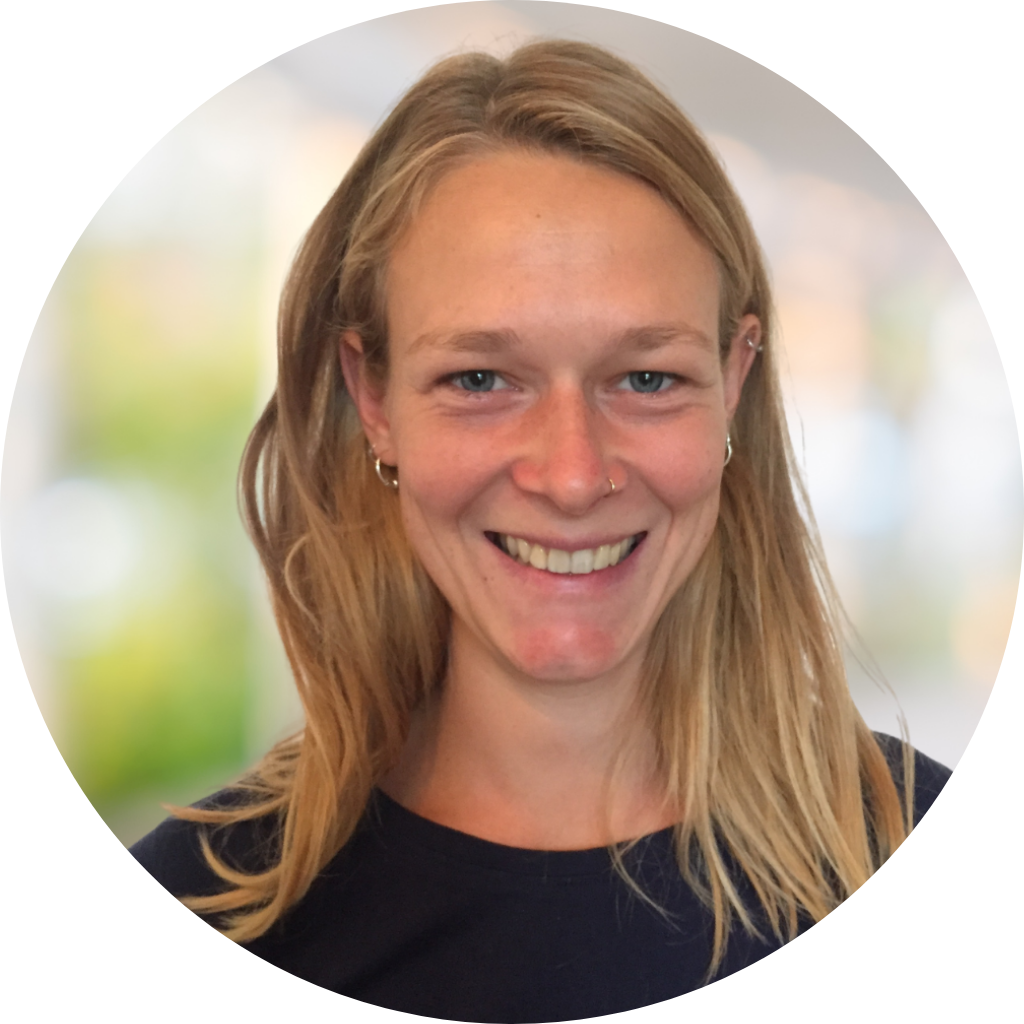

saturday, September 6th | 2:30 pM
Session 4 | room "PRANAVA"
A Somatic Workshop Between Embodiment and Surrender
In our age of constant information flow and speed obsession, this workshop creates a revolutionary space for slowness and connection with our natural rhythm. The human organism knows the rhythm of waves – the cyclical rising and falling between nervous activation and ventral vagal integration. Combining yoga and body psychotherapy, we explore three fundamental somatic states as an embodied mini-wave: conscious rising as authentic presence, falling as surrender into our essence, and stillness as integrative space beyond activity-rest duality.
We begin with our relationship to gravity as the foundation of all rising. Through body psychotherapeutic interventions and somatic yoga practices, we discover how true uprightness emerges from the organism’s depths – not as compensatory posture against falling, but as living expression of embodied authenticity. Working with the vertical axis becomes a path of self-encounter.
We explore conscious letting go through gentle playful elements of controlled falling, deconstructing habitual resistance patterns and experiencing self-connection even while falling. We work with the paradox that true strength often lies in yielding, and safety emerges through connection, not control.
Integration happens in stillness’ nourishing power, where movement settles and experience inscribes into body memory. Here we discover deep connection when we no longer separate activity from rest, self from environment. Stillness becomes a space of co-regulation and embodied presence.
This workshop invites direct, embodied experience of navigating life’s fundamental poles, using the body as primary pathway to discover how authentic strength and true surrender nourish each other.
“Your body remembers the time before, during and after your birth”
RENATE ABEL, Germany
Renate Abel, born in 1953, worked as a teacher for 20 years, including 6 years in individual case support and systemic counselling. After training and assistance in Biodynamic Body Psychotherapy (Gerda, Ebba, and Mona Lisa Boyesen, Menno de Lange and others) she worked in private practice for 30 years, giving individual therapy and theme-orientated workshops. 2006-2013 she trained in pre- and perinatal psychology with Karlton Terry. This enrichment motivated her to develop the Biodynamic Birth Trauma Therapy®, conducted in a nine-month cycle "My path into life". It provides a clear structure to comprehensively work through your birth traumas. For the 2021 cycle, conducted with her Dutch colleague I. Göttges, a study by S. Thurmann showed the effectiveness of her concept.
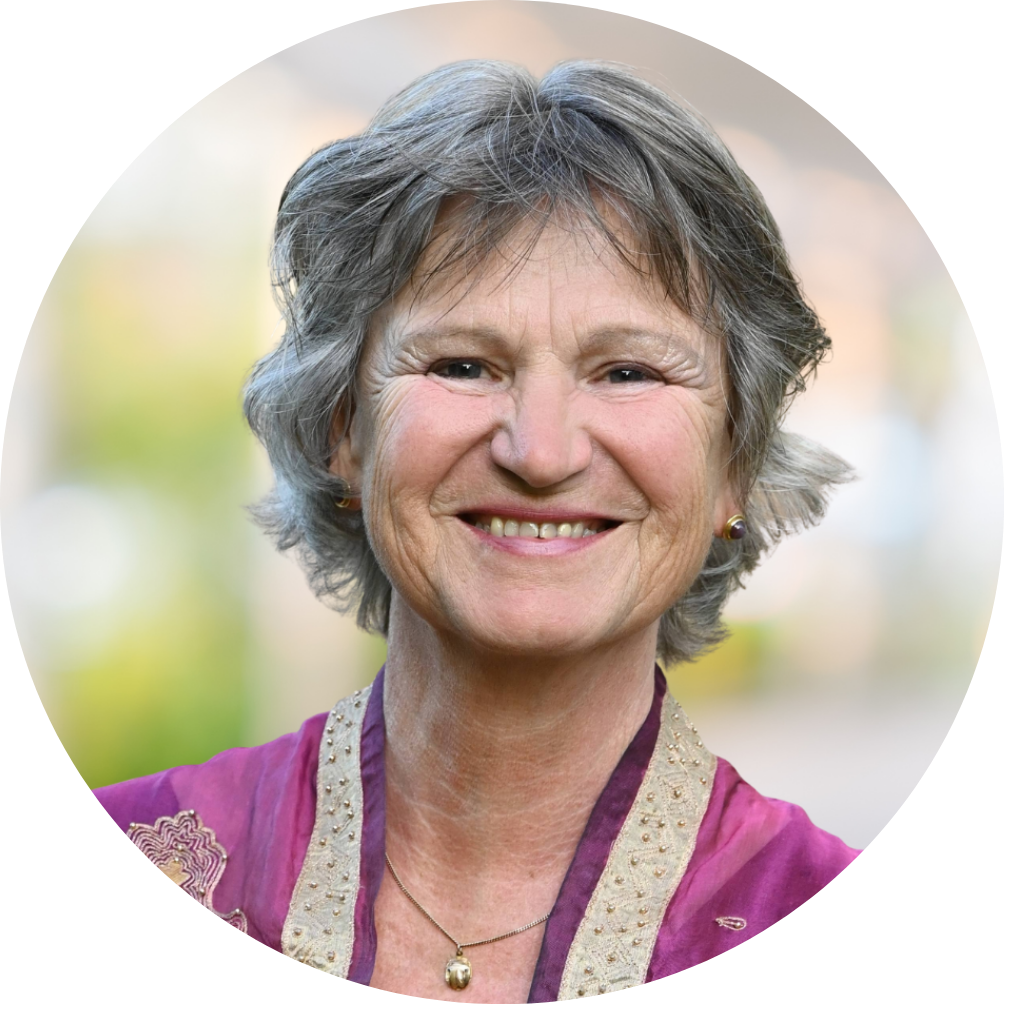
saturday, September 6th | 2:30 pM
Session 4 | room "GAYATRI" [TRIPURA 1]
It is not until about three weeks after birth that the most important synaptic connections in the brain are established, and the basic structures for thinking, acting, and experiencing are formed. The path into life—beginning with conception and the incarnation of the soul—has profound significance for the way life is lived.
In this workshop, participants will gain insights into imprinting and explore ways in which experiences from conception, prenatal development, the birth process, and the postnatal phase can be healed. Through body work, participants will discover that the body remembers. They will gain an understanding of how their earliest experiences shaped their approach to life—impacting the development of the nervous system, behavior patterns, relationships, and the underlying emotional tone of joy or sorrow.
Biodynamic Birth Trauma Therapy®, as offered by Renate since 2012, is based on the birth release process developed by biodynamic psychotherapist Ebba Boyesen and on trauma therapy according to Karlton Terry. It also incorporates elements of the facilitator’s own therapeutic practice.
Studies conducted in 2021 confirm the effectiveness of this method.
www.renateabel.de
“Safety Through Movement”
Lurdes Salgado, Portugal
Lurdes Salgado is a Portuguese physiotherapist with 16 years of clinical experience, dedicated to exploring the complex connection between body, mind, and emotions, with a particular focus on the psychosomatic dimensions of health. Her professional background includes advanced training in Pilates, Neurolinguistic Programming (NLP), and Integrative Body Psychotherapy (Portuguese Institute of Body Psychotherapy), which inform her multidisciplinary and integrative approach to care—combining scientific knowledge with attuned somatic listening. Lurdes facilitates individual sessions, therapeutic movement groups, and experiential workshops, creating safe and supportive environments where individuals can reconnect with their bodies, explore embodied awareness, and engage in meaningful personal transformation. In addition to her clinical work, she is an educator and speaker, regularly contributing to training programs, corporate initiatives, and professional events, with the aim of promoting embodied health, emotional literacy, and integrative healthcare practices.
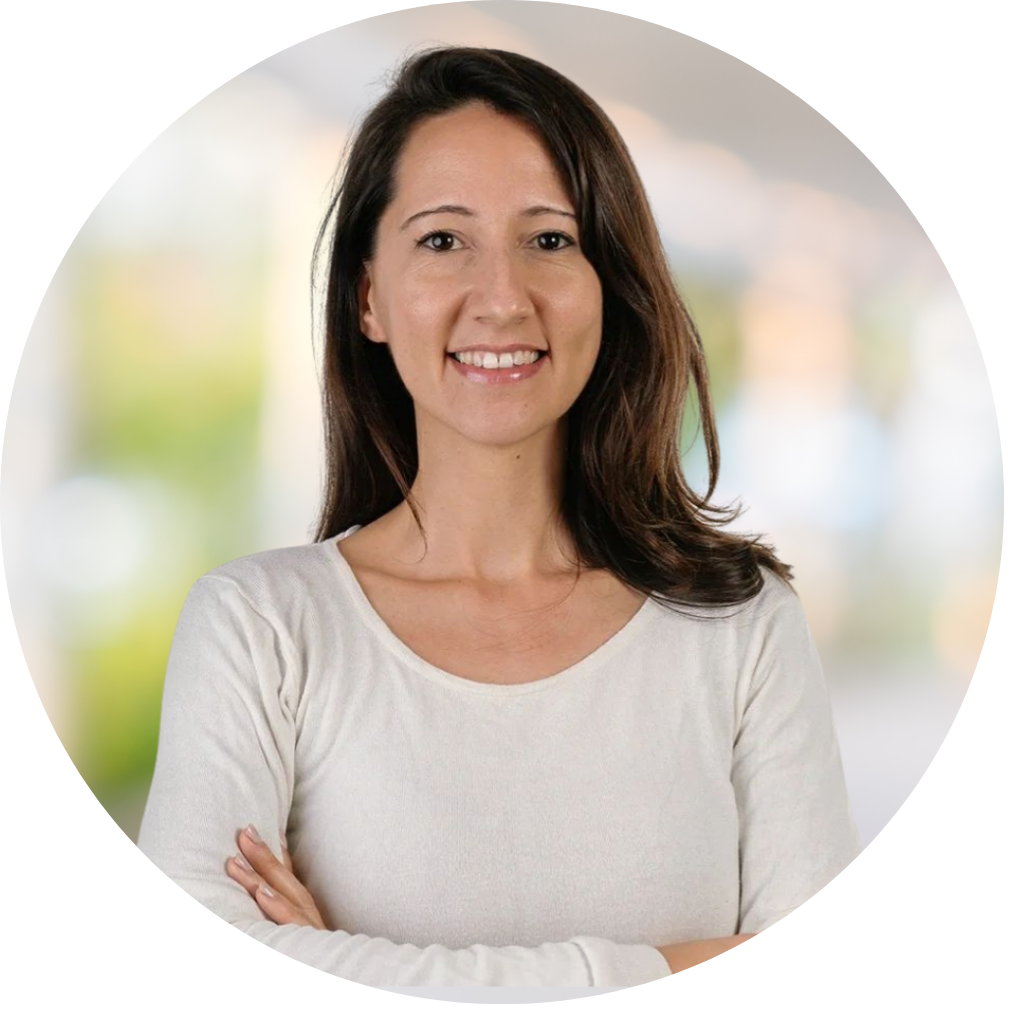
saturday, September 6th | 2:30 pM
Session 4 | room "SUNDARI"
A somatic, body-based exploration focused on cultivating embodied safety, emotional regulation, and affective neuroplasticity through movement practices and self-expression.
In therapeutic and relational contexts, the other often mirrors internal states—revealing what contracts or expands, and how individuals are shaped by interaction. Group movement can become a fertile ground for exploring new relational patterns and expanding embodied resources for transformation.
This experiential workshop invites participants to explore the collective as a safe container, where it is possible to feel, move, and connect in a more regulated, spontaneous, and authentic way—without feeling threatened. The process integrates individual, pair, and group dynamics to support an exploration of co-regulation and authentic relational contact.
The workshop is supported by music intentionally selected to deepen access to inner states and promote personal and relational processes. The musical landscape serves as a somatic anchor, inviting a fluid dialogue between mind, body, emotions, and the environment. The workshop concludes with time and space for integration and group sharing.
“The Birth Story in the Body”
matthew appleton, uk
Matthew Appleton, a SOMA Festival keynote speaker, is a registered Body Psychotherapist and Craniosacral Therapist living and working in Bristol, England. He a member of the International Society of Prenatal and Perinatal Psychology and Medicine and has more than 20 years experience of lecturing, facilitating workshops and training practitioners in working therapeutically with babies, children and their parents. He is the author of more than a hundred published articles, on subjects ranging from democratic education, sexuality, psychotherapy, craniosacral therapy and the effects of pre and perinatal stress on babies and children.
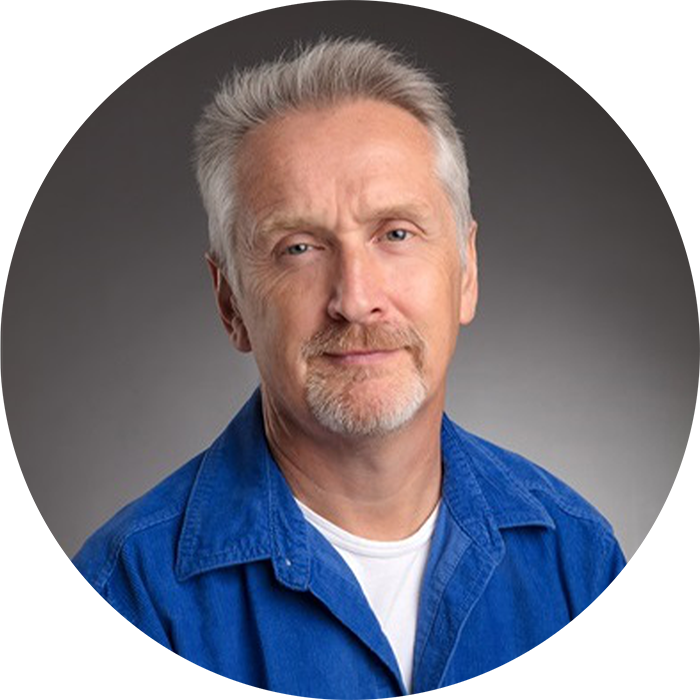
saturday, September 6th | 2:30 pM
Session 4 | room "GITA VIDYA"
This workshop will explore how our birth story is embodied, and how the body carries the memory of how we came into the world. We will look at how the way we were shaped by birth can be recognized through somatic signs — subtle patterns that continue to live in us long after the event itself. This approach allows us to relate to birth not only as something that happened in the past, but as a living legacy that still informs how we experience ourselves, others, and life in the present.
Rather than focusing purely on narrative or memory, we will turn toward the body as a source of insight. The workshop will weave together theoretical input and guided experiential exercises, offering space for reflection, embodied exploration, and personal discovery.
“Neuro Resilience Exercises - strengthening adaptability in the age of stress and trauma ”
Kolbjørn Vårdal, sweden
Kolbjørn Vårdal is an experienced body psychotherapist (MEABP) and co-founder of Relational Trauma Therapy. With a rich and interdisciplinary background spanning naturopathy, somatic psychotherapy (Bodynamic), Pilates, neurological training, educational science, and a master’s degree in violence and traumatic stress, he brings a unique and holistic approach to trauma work. Driven by a deep passion for innovation in body psychotherapy, Kolbjørn has spent the past eight years developing the effective NRE methodology—a powerful approach for working with traumatic states and healing traumatic memories.

saturday, September 6th | 2:30 pM
Session 4 | room "VIDYANANDA"
Relational Trauma Therapy specializes in understanding and effectively addressing hypo-aroused states (under-activated states) within trauma work. Our clinical experience has highlighted the crucial role of addressing neurologically under-activated systems through sensory rehabilitation and education. This insight has culminated in the development of the Neuro Resilience Exercises (NRE) methodology.
In this workshop, we will engage in exercises that target specific neurological systems to support regulation and strengthen the capacity to cope with stress and trauma. We’ll explore systems involved in sensing the present moment, reducing hyper-focused (tunnel) vision, and maintaining a flexible first-person perspective. Participants will have the opportunity to share their experiences, and together we will reflect on what we’ve learned.
The primary role of the nervous system is to coordinate and regulate the body’s functions. Neuro Resilience Exercises (NRE) focuses on how intentional movement can support therapists and educators in maintaining presence and focus while engaging with clients or groups experiencing high arousal states.
Hypo-aroused states are often experienced as low energy or a sense of shutdown. In entering a hypo-arousal state, the body reduces movement and sensory integration. NRE offers a methodology that helps therapists gradually build internal resources, increasing their resilience and providing practical tools for working with hypo-arousal and dissociation with clients.
“ The Art of Embodied Flirting ”
chadi bahouth, germany
Chadi Bahouth began his professional journey far from the world of embodiment—as a political scientist with a PhD and a journalist, his early work was rooted in intellect and analysis. Everything shifted thirteen years ago when he participated in The Hero’s Journey, a transformative seminar created by Paul Rebillot. The experience marked a turning point, awakening a deep interest in human psychology and somatic processes. Inspired by that life-changing encounter, he trained to facilitate The Hero’s Journey himself and went on to study Gestalt therapy. He is currently in her final year of the Transformative Body Psychotherapy training led by Bettina Schröter. With over a decade of experience, He has facilitated seminars for diverse groups—ranging from anti-bias and anti-racism trainings to political education workshops. His work also includes leading experiential seminars on breathing practices Ask ChatGPT

saturday, September 6th | 2:30 pM
Session 4 | room "MAHAVIRA"
This experiential workshop explores the subtle, often overlooked dimensions of flirting — not through techniques or strategies, but through embodied awareness. What sensations arise in your body when you’re in a flirty situation? Are you aware of them, or do you tend to ignore or suppress them? How does your breath change? Your voice? Do you feel grounded in your energy, or do you lose your sense of control or clarity?
Through playful exercises and mindful attention, we will investigate how flirtation affects our presence, boundaries, and self-expression. This workshop offers a safe and dynamic space to observe, experiment, and reconnect with your own vitality in moments of relational spark.
The structure of the workshop is fluid and can be adapted to the needs and comfort levels of participants. Suitable for all genders and orientations, with no prior experience required.
“Loving from Within: Reconnecting through the Body ”
nevena dragneva, bulgaria
Nevena Dragneva is a psychologist and dancer from Bulgaria with a strong background in both academic and somatic disciplines. She holds degrees in Psychology and Communication Studies from the University of Vienna and Veliko Tarnovo University and is a certified life coach. With over a decade of experience as a professional dancer in contemporary, hip hop, and ballet styles, she integrates movement and psychological insight to support personal growth and emotional healing. Her work focuses on helping individuals—particularly women—develop self-confidence, emotional intelligence, and a deeper connection to their bodies. Drawing from years of practice in embodiment, mental health, and self-development, she facilitates workshops that combine movement, mindfulness, and psychology. While not formally certified in dance movement therapy, her approach is rooted in practical experience and a belief in the inseparable connection between body, mind, and soul.

saturday, September 6th | 2:30 pM
Session 4 | room "SHANTI DEVI"
This guided movement workshop blends psychological insight with embodied practice to support emotional expression, somatic awareness, and reconnection with the self. Through a dynamic mix of warm-up, movement, and reflection, participants will explore how emotions live in the body and how movement can become a tool for inner clarity, release, and empowerment.
The workshop begins with setting personal intentions, followed by a gentle warm-up to awaken the body. The core of the session is a guided, theme-based movement exploration that encourages participants to listen inward, move authentically, and process emotional states through the body. We close with a grounding integration phase and a brief sharing circle.
Open to all levels of experience, this session is not therapy in the classical sense, but an experiential space where dance, awareness, and psychology meet.
“Safety and hypo-states. Why does regulating hypo-response support optimizing safety? And how do we do it ”
MERETE HOLM BRANTJBERG, DENMARK
Merete Holm Brantbjerg is an innovative psychomotor trainer and a co-creator of Bodynamic Analysis. With a career spanning nearly 40 years, Merete has spent the last two decades developing Relational Trauma Therapy, an approach that bridges psychomotor techniques, neurocentric skill training, and group systems to support trauma recovery. Her methodology focuses on regulating hypo-states—areas of the body and mind that become under-responsive due to trauma. By creating systems of mutual regulation, her work helps individuals access and process emotions and experiences that have been held in dissociation. Based in Copenhagen, Denmark, Merete leads workshops and training programs both in-person and online for therapists across the globe. Her work is known for being deeply practical, innovative, and grounded in compassion, offering valuable tools for integrating body awareness into trauma therapy.
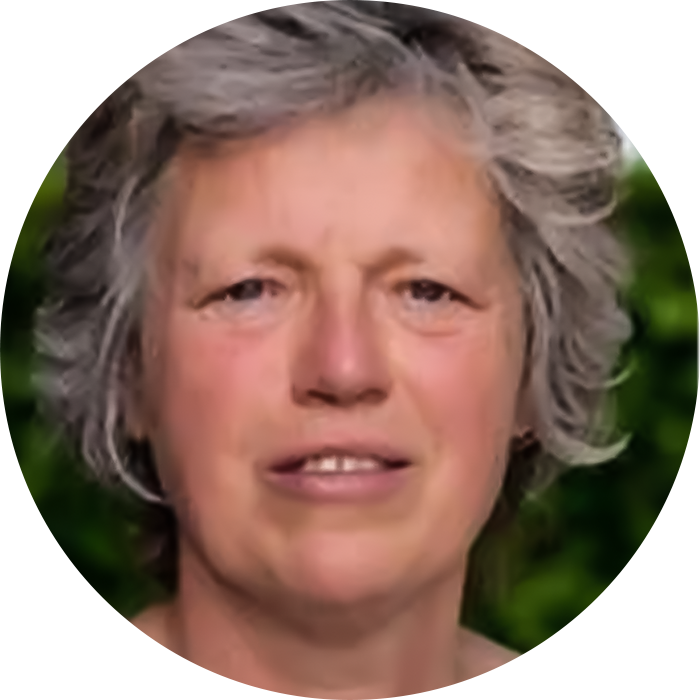
saturday, September 6th | 4:30 pM
Session 5 | room "ANANDA"
Going hypo-responsive in some of our muscles leaves us with energetic “holes” in our boundaries. We lose access to some of our psychomotor impulses and emotions – with that our access to clear orientation and choice diminishes.
This impacts our experience of safety.
In this workshop you will get to know about different levels of going hypo in the body: Hypo-response (giving up) in muscles – and hypo-arousal (collapsing, shutting down) in the autonomic nervous-system. We will experiment with micro-activations and joint-movements as ways of engaging with and awakening hypo-responsive muscles. And we will explore how that impacts our access to being able to orient, having choice – and to optimizing safety.
“realm - Boundary - Contact ”
bernd laserstein, germany
Bernd Laserstein, alternative practitioner, certified biosynthesis therapist, teaching therapist and supervisor Since 1996 in private practice, lecturer, publication of congress reports and articles in “Energy & Character”, presentation of the workshop “Space, Boundary, Contact” at the DGK Congress 2009 in Berlin and at the EABP Congress in Vienna 2010 and other congresses.

saturday, September 6th | 4:30 pM
Session 5 | room "GITA VIDYA"
This Workshop presents a special setting, that offers some very helpful means to clariefy the clients realm. A round carpet becomes any room, the client would need. Negotiations about boundary, exchange and regulation help to create a secure relationship. This setting focusses the themes that are relevant for the client at the very moment. Biosynthesis principles may then help the client to move one step beyond his problems.
“The Living Boundary: A Somatic Exploration of Self in Connection ”
STEFI PETRUNOVA, BULGARIA
Stefi Petrunova's journey into psychotherapy is one of profound personal transformation. Her professional path began in entrepreneurship but was redirected by a deep calling to help others, sparked during volunteer work with children in institutional care. This path led her to a rigorous academic and therapeutic exploration, culminating in a Master's degree in Developmental Psychology and extensive training in multiple therapeutic modalities. Today, Stefi is a psychotherapist whose work is deeply informed by her thesis, "When I Am Not Wanted," a study of how complex relational trauma shapes our sense of self and capacity for connection. She describes this work as a "personal act of integration". Her approach is integrative, drawing from her training as a Neo-Reichian Analytical Psychotherapist (under supervision), and in modalities such as Positive Psychotherapy and Family Constellations. As a member of the European Association for Body Psychotherapy (EABP), she is deeply committed to the principles of somatic healing. In her practice, Stefi creates safe, supportive spaces for individuals to heal the wounds of toxic shame, restore trust, and build authentic relationships.

saturday, September 6th | 4:30 pM
Session 5 | room "SUPRINYANDA"
Do you ever feel lost in the crowd, longing for connection yet needing your own space? This 90-minute experiential workshop addresses a core human dilemma: how to maintain our authentic self while being in relationship with others. We will explore the boundary not as a rigid wall that separates us, but as a living, breathing, and intelligent part of our Soma – a sensitive membrane where we truly meet ourselves and the world.
This journey is an invitation to move beyond the idea of boundaries and into their direct, felt sense. Through safe and playful somatic exercises, we will make the invisible visible, discovering how our body signals where we end and the world begins. No prior experience is needed, only a curiosity to listen.
We will begin with grounding practices to connect with our inner core of calm and stability, then move into individual and partner exercises to sense our personal space and explore the dynamics of yielding, asserting, and balancing through non-verbal, respectful contact, concluding by integrating this awareness and discovering how a clear, felt boundary becomes the foundation for deeper, more authentic connection.

“Spiraling Into balance: Returning To The Body, Nature And Authentic Self ”
JENNI SCHMITZ, USA
Jenni is an international artist, instructor, performer, licensed counselor, and transformational embodiment movement meditation guide. Jenni offers people deeply nourishing workshops that give you tools to calm your nervous system, release tension and stress, connecting to your core and center of Being, coming back into natural alignment, feeling more restful, at ease, connected to your embodied fullness, mindfulness self- awareness & presence, and flow in stillness and movement in your SOMA, your body experience from within in dance and moving in life. Jenni received her masters degree in 2008 and licensed in counseling and expressive arts therapies, with specializations in somatic therapy, transpersonal psychology, positive psychology, art therapy, dance/movement therapies, energy psychology, somatic movement education, play therapy, music therapy, drama therapy, certified in clinical hypnosis, certified in addictions treatment, certified in mental health disaster relief, meditation guide, healing touch energy, experimental anatomy, and more. Jenni has studied and practiced mindfulness and mediation with Tiebtan Rinpoches since 2008. Jenni started dancing as a child and been teaching dances from around the world for 12 years.

saturday, September 6th | 4:30 pM
Session 5 | room "SHANTI DEVI"
This workshop intends to help to become more aware of your authentic self, aware of your needs, and gives participants experiential tools for coming back into balance, wellness, and wholeness. The tools shared are to increase SOMA (Body) awareness, cultivating present moment focus & non-judgment observation (mindfulness), reconnect to their body, integration mind/body/heart/spirit, reconnect to nature with the body and using expressive art reflective exercise.
The workshop begins with a check-in, inviting participants to come home to the body through a guided meditation with body scan, centering and grounding somatic practices, and somatic movement exercises. We then explore the metaphor of the “wellspring of life”: as children, many of us are born with a clear, abundant source of life, energy, creativity, hope, playfulness, generosity, love, happiness, and connection to others. As adults, this “wellspring” can feel dry due to stress, responsibilities, and the demands of fast-paced life, highlighting the importance of rediscovering ways to nurture our authentic self and integrate mind, body, heart, and spirit in a space of peace. Participants are guided into a self-directed experience in nature, using meditative exercises, somatic awareness, prompts for reflection, and expressive arts such as journaling, poetry, movement, photography, or other creative responses, allowing time for solitude and deep reconnection. The workshop concludes with a group check-in, offering space for participants to share their experiences and be witnessed with loving-kindness and non-judgment.
Limited art materials and paper will be available. You are encouraged to bring your own journal/paper, pen, and/or supplies you prefer

“The Felt Voice - Resonating out of yourself and back into yourself ”
MARTIN SCHAFFNER, germany
Martin Schäffner is a singer, voice teacher, and certified Focusing practitioner based in Bad Kissingen, Germany. Deeply fascinated by the possibilities of vocal expression, he studied musical theatre at the University of the Arts Berlin (UdK), where he received his diploma in 2006. Having been immersed in the performing arts from an early age, he encountered the joy as well as limitations and anxieties arising around vocal expression. Over time, his path led him toward body-based approaches to presence and connection. He is certified by The International Focusing Institute (TIFI) and trained in various modalities of body-oriented and trauma-informed voice work. He finds joy in working at the meeting point of body, mindfulness, and the simple presence of being — exploring how voice can deepen presence and open authentic connection.

saturday, September 6th | 4:30 pM
Session 5 | room "GAYATRI" [TRIPURA 1]
We often experience speaking as something that goes outward — towards others, into the world. A means to share content and relate to the outside world. Yet every spoken word is already a bodily happening: vibration, resonance, movement through tissues and breath. When we allow ourselves to connect with the felt sense of speaking right in the moment, we discover that the voice is not only a movement that reaches outward, but at the same time a call that can guide us inward.
In this experiential workshop, we will explore the voice as a living bridge between inner experiencing and outer expression. Allowing ourselves to feel this synchronicity, we can discover an embodied way of speaking that lets us vibrate outward and at the same time settle more deeply into ourselves.
This workshop is grounded in Focusing and somatic voicework. The approach will be slow and gently paced. Together, we will enter the space behind language, where every word has already embodied sound, tone, and sensation. From there, we will gently allow spontaneous sounds to emerge and then bring our voices into contact — softly, playfully and with care. We will work in the group and in pairs.

“The Power of your Breath - Conscious Connected Breathwork ”
janina klarmann, germany
Janina Klarmann is a breathwork facilitator for Conscious Connected Breathing, training with Martha Habenith and Abdel Nemri. Their approach is an integrative breath and bodywork one. She is currently writing her Master's Thesis on the Neural Correlates of Breathwork as well. Her approach is inspired by her aforementioned+6 teachers and tries to bridge science and experience.
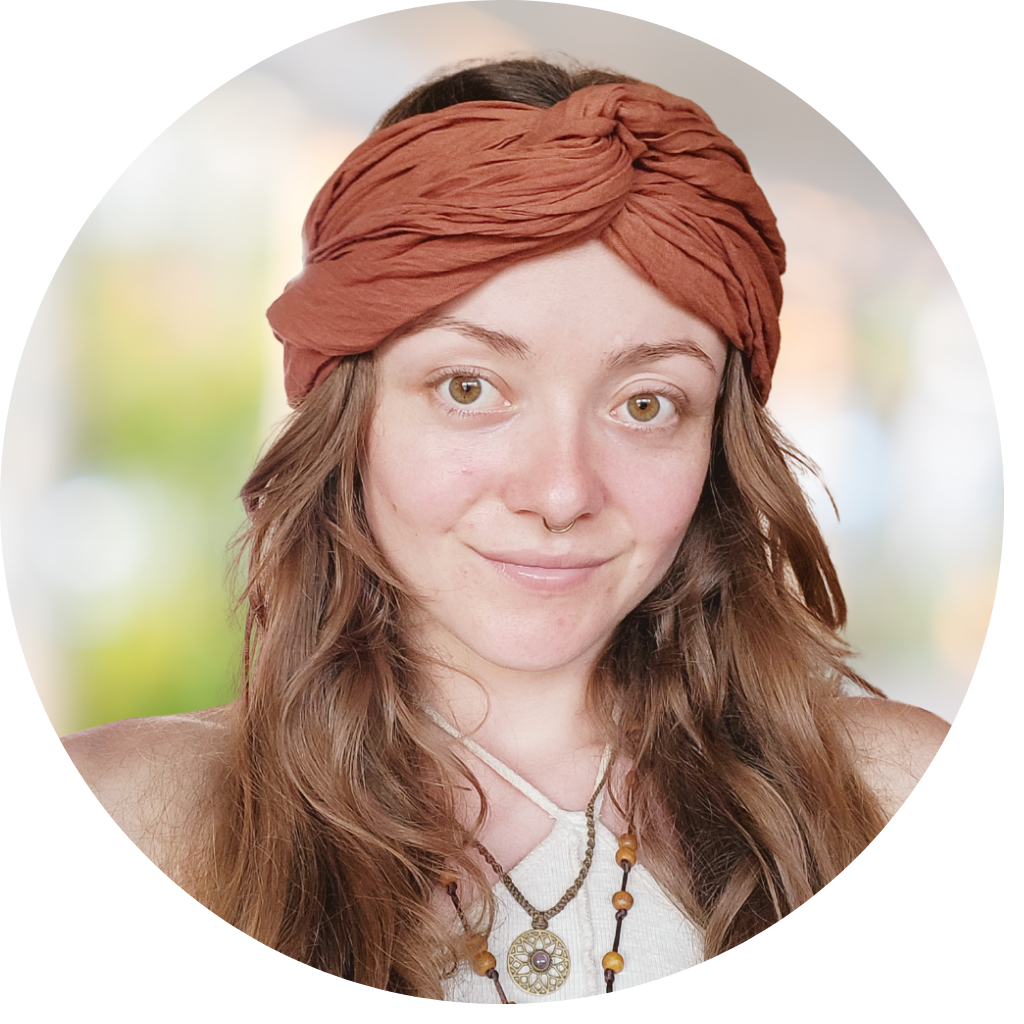
saturday, September 6th | 4:30 pM
Session 5 | room "VIDYANANDA"
The workshop will consist of a Conscious Connected Breathwork Session, which is a high ventilation breathwork practice. These intense breathwork practices are know to elicit altered states of consciousness and have comparable effects to psychedelics in many dimensions of the common assessment scales. The self-reliant nature of breathwork allows us to experience a different level of trust in the own system while exploring the corners of our body and mind. Through the combination of hyperventilation and a deep belly breath, there is hypothesized to be a simultaneous activation of the sympathetic and parasympathetic branches of our nervous system. Breathwork is also known to have other positive health outcomes, as an improved immune response.
The workshop itself will start with some body-based practices before I will bring you closer to the practice. The intense breathing itself will last appx. 40 minutes. Afterwards, you will have some time to land and integrate your experience. Breathwork is a great practice to deepen your understanding of yourself and connect with your emotional and cognitive landscape more.

“Words as a Bridge Between Emotions and Mind”
daniela andreeva, bulgaria
Daniela Andreeva has a Bachelor’s and a Master’s degree in Theater and Media Science; and Psychology at Friedrich Alexander University in Germany, Nuremberg. Later, she began specializing in Body Psychotherapy in the Bulgarian Institute of Neo-Reichian Analytical Psychotherapy. Daniela currently works with clients individually and in group therapy under supervision. She is part of the editorial team of the International Body Psychotherapy Journal, published by the European Association of Body Psychotherapy.

saturday, September 6th | 4:30 pM
Session 5 | room "PREMANANDA"
This workshop is inspired by my long-standing passion for creative writing as a means of expressing the inner world. Together, we will explore how words can serve as a tool for expressing emotions, bodily sensations, moods, and spontaneous impulses.
While language can sometimes feel limiting or insufficient for fully capturing our inner experiences, the spoken word remains a powerful way to connect with others and express our inner universe. Each person, as the creator of their own life – its artist, painter, and poet – is capable of feeling, shaping, and expressing their own unique truth through words.
Throughout the workshop, we will connect with our bodies and emotions, engaging in free, intuitive exercises with words, associations and language symbols, to discover what our personal poetry sounds like.
Each participant is kindly asked to bring their own writing materials – a pen and paper or a notebook.

“Your Body As The Altar Of Play ”
Alexandra Algafari, bulgaria
Alexandra Algafari is a psychologist and a body psychotherapist who has had a therapeutic practice since 2018. She has studied in the UK, in Spain and in Bulgaria. Her main focus is in teaching self-empathy, creating a deeper understanding of unpleasant emotional experiences, expanding tolerance to pleasure, building resilience and confidence, and exploring the conscious flexibility between setting firm boundaries and letting go of control. Her passion for Body Psychotherapy has only grown in the past years and she has developed a particular interest in psychosomatics, neuroscience, developmental and transgenerational trauma, internal family system-work and inner-child work. Alexandra is the Executive Director of the Bulgarian Institute of Neoreichian Analytical Psychotherapy, she is a teacher of Group Psychotherapy and Psychodiagnostics at the Institute, she is the founder of the first-of-its-kind in Bulgaria personal development online community JAYA Tribe, and she has an engaging YouTube channel where she shares down-to-earth videos with theoretical introductions and practical advice for the regular person to take home and apply.
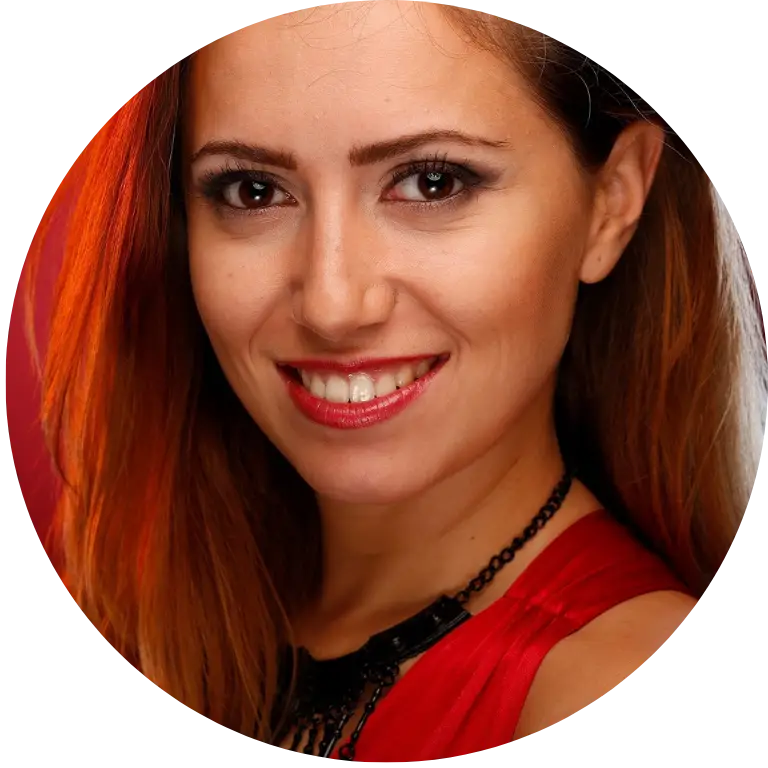
saturday, September 6th | 4:30 pM
Session 5 | room "Matri Bhava"
Someone wise once said – make sure you don’t die before you’re dead. My great grandma’s worst comment for someone used to be that “they are dead in their own skin”. Most people equate growing up to growing old.
If all of this sounds depressing to you, you should be glad – you’re not one of them. And even so – when was the last time you just let go and forgot that you are an adult? When as the last time you shh’d that analytical little voice in your head that keeps telling you you’re not a kid anymore?
In this workshop we won’t talk much. We will explore what all of us used to know and live by – play. You will get to meet that little kid who lives deep down inside you and who may have a thing or two to say to you. And you will have a chance to bring them out to play like there is no tomorrow.
We will go through a short visualisation to meet the inner child and then we will let them play with finger paint. The catch? The canvas is your own body. You are strongly encouraged to come dressed in clothes you don’t mind messing up (don’t worry – the paint washes off completely). And if you are feeling really brave (which is the preferred option) – come wearing a bathing suit or in your underwear because children don’t care that much.

“Being in contact - Tango as a path to body awareness and relationship building ”
carolin Peterhänsel, germany
Carolin is a psychological psychotherapist trained in cognitive behavioral therapy, who soon realized that some aspects of human experience cannot be captured by talk therapy alone. Her journey led her through mindfulness, meditation, Tantra, and sexological bodywork to her current training in Transformative Body Psychotherapy in Berlin with Bettina Schroeter and Wolfgang Hegenbart. Alongside her therapeutic work, Carolin is an explorer by nature - someone who loves to discover the self through embodied experience. She is a passionate Tango dancer, enjoys acting and singing, and can often be found walking the Camino de Santiago routes across Europe. Her work invites people to explore their heartfelt wishes, strengths, and personal rhythms - and to weave them into a life that feels both grounded and alive. Alexandra is the Executive Director of the Bulgarian Institute of Neoreichian Analytical Psychotherapy, she is a teacher of Group Psychotherapy and Psychodiagnostics at the Institute, she is the founder of the first-of-its-kind in Bulgaria personal development online community JAYA Tribe, and she has an engaging YouTube channel where she shares down-to-earth videos with theoretical introductions and practical advice for the regular person to take home and apply.
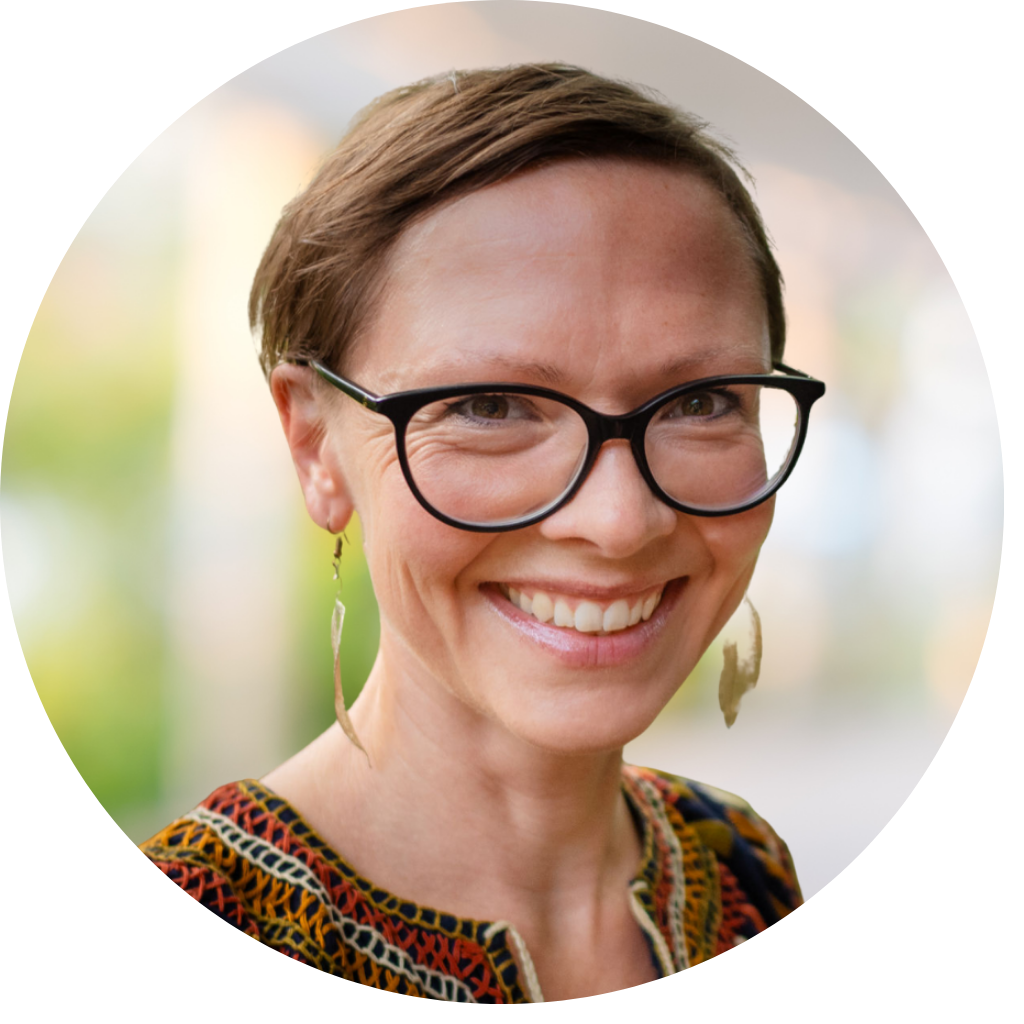
saturday, September 6th | 4:30 pM
Session 5 | room "SUNDARI"
Description of the workshop: The 90-minute experiential workshop uses the essence of Argentine Tango – not as a dance class, but as a moving metaphor for human connection, communication, and self-awareness. Through simple walking exercises, mindful partner work, and guided reflections, participants will explore core principles of both Tango and body-oriented psychotherapy: grounding, presence, listening with the body, setting boundaries, and engaging in authentic dialogue without words.
No dance experience is required. The focus is not on perfect steps but on the felt sense of connection – with oneself, with another, and with the space in between. By the end of the workshop, participants will have experienced a simple, accessible Tango sequence, and discovered new ways to notice, negotiate, and enjoy contact in movement.

“Reliving your first steps: NeuroMotor Development experienced through Somatic Movement. ”
Florian filtzinger, germany
Florian Filtzinger is a dedicated Somatic Movement Educator trained at the Somatic Academy Berlin and a Movement Therapist certified by the Institute of Dynamic Embodiment in NYC, studying under Dr. Martha Eddy. He is also a graduate of the Compassionate Inquiry professional training. Florian has a background in anthropology and communication science from Berlin, enriching his approach to embodiment and healing. With over four years on the board of ISMETA, the international somatic movement education and therapy association, he brings extensive leadership and expertise. His work includes supporting artists in exploring the origins of creativity and serving marginalized populations—activists, discriminated communities, and elders—in Europe. His practice integrates somatic awareness with social justice, fostering resilience and well-being. Filtzinger is occupied in a private clinic for psychosomatics in Berlin and in private practice. Title of workshop: Reliving your first steps: NeuroMotor Development experienced through Somatic Movement.
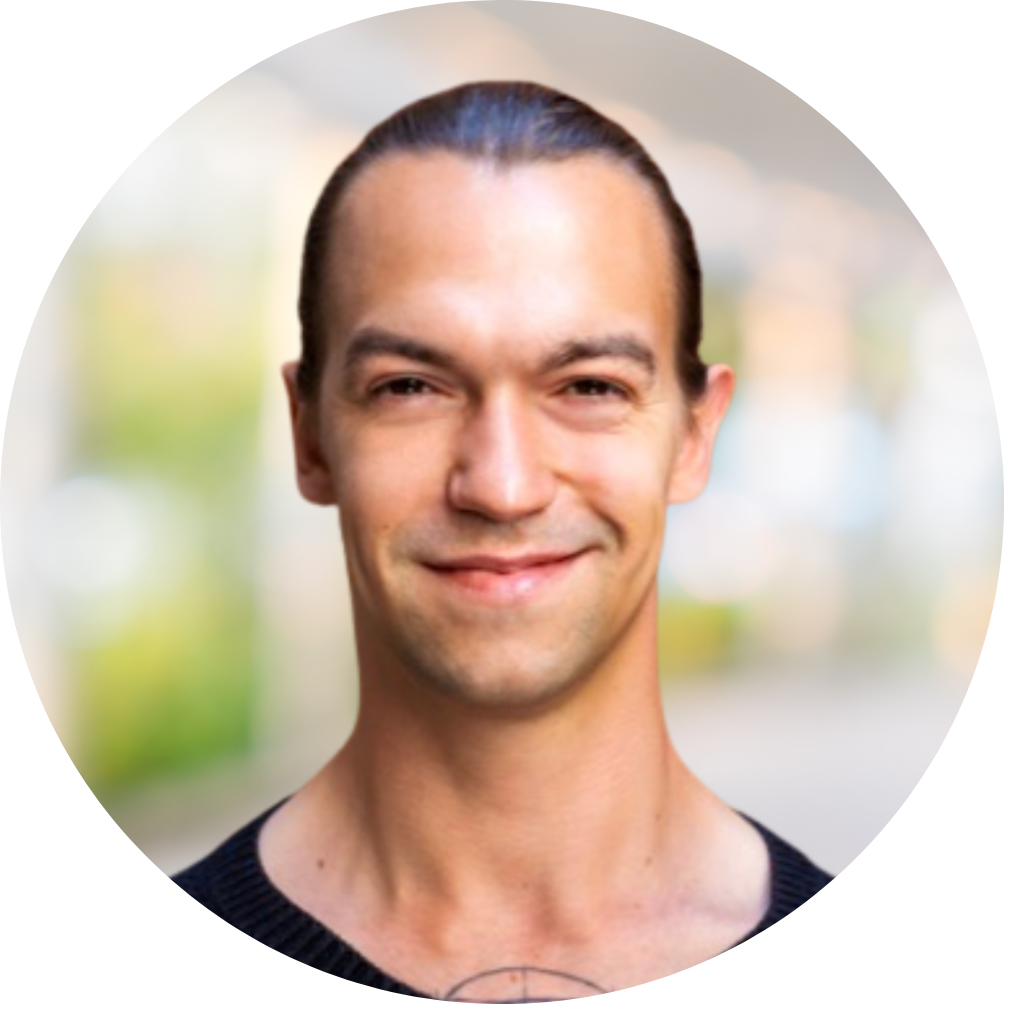
saturday, September 6th | 2:30 pM
Session 4 | room "NARYANI" [TRIPURA 3]"
Explore the intricate world of Basic Neurocellular Patterns (BNP) as we trace our movement origins from the very moment of conception and going back to the present. This workshop delves into both pre- and post-birth movement patterns, revealing how they continue to influence our adult bodies and movements. In a gently guided atmosphere you will be able to connect and (re-)integrate all movements underlying each decision of conscious action we take.
Through gentle, compassionate exploration, participants will:
- Revisit and re-learn fundamental developmental movements
- Uncover connections between early patterns and current movement habits
- Experience a form of developmental movement that enhances sensory processing
- Discover ways to move with greater ease, pleasure, and confidence and foremost awareness
This workshop offers an opportunity for both personal growth and professional application as much as understanding the possibilities of somatic movement therapy.
By understanding the principles of neuromotor development – from brain maturation to reflex integration – you’ll gain insights into how early movement patterns and your earliest childhood environment shape our physical, cognitive, and behavioral outcomes.

“The embodied visceral core-self - a hands-on session ”
Siegfried Bach, germany
Siegfried Bach, a practicing biodynamic psychotherapist for over 40 years, has worked extensively with patients, groups and in training other therapists. He founded the bioZEN center for biodynamic psychotherapy in 1992 and cooperated in developing the curriculum with Gerda Boyesen, the founder of Biodynamic psychotherapy. He also got a degree in Psychology and worked in a clinic for chronic pain patients for six years. He has done research on the parasympathetic reactivity under emotional conditions. His mission is spreading the knowledge about the visceral core self while maintaining a firm ground in scientific and clinical psychology.

In this workshop, after the theoretical model is presented first and participants will be guided through practical exercises from the manual.
The model offers a new understanding of the mind and social challenges, much like the embryonic triploblast design advanced life’s evolution through specialized, interacting agents and spurred social cooperation. It details the complexity of human phenomena, illustrating the functional dynamics between their components. This model demonstrates how the gut orchestrates fundamental moods, acting as more than just an information source, a perspective often overlooked by research, that reduces the psyche to neuronal processes.
Based on this model, I have developed a clinical manual for structural strengthening. This manual will utilize a variety of body methods, mentalization, and social interaction to safely and effectively strengthen deficient ego functions. A key biodynamic objective is to cultivate tolerance to oceanic streaming during deep relaxation. This goes beyond Gerda Boyesen’s “independent sense of well-being,” which is crucial for overcoming anxieties like pleasure-anxiety. It also addresses the profound human need for connection and security, a driving force behind mythological narratives, as described by Otto Rank. This deep yearning often remains unfulfilled, particularly in cases of early trauma.
All are welcome to experience this, from newcomers to seasoned clinicians.

“The embodied visceral core-self - a hands-on session ”
Siegfried Bach, germany
Siegfried Bach, a practicing biodynamic psychotherapist for over 40 years, has worked extensively with patients, groups and in training other therapists. He founded the bioZEN center for biodynamic psychotherapy in 1992 and cooperated in developing the curriculum with Gerda Boyesen, the founder of Biodynamic psychotherapy. He also got a degree in Psychology and worked in a clinic for chronic pain patients for six years. He has done research on the parasympathetic reactivity under emotional conditions. His mission is spreading the knowledge about the visceral core self while maintaining a firm ground in scientific and clinical psychology.

In this workshop, after the theoretical model is presented first and participants will be guided through practical exercises from the manual.
The model offers a new understanding of the mind and social challenges, much like the embryonic triploblast design advanced life’s evolution through specialized, interacting agents and spurred social cooperation. It details the complexity of human phenomena, illustrating the functional dynamics between their components. This model demonstrates how the gut orchestrates fundamental moods, acting as more than just an information source, a perspective often overlooked by research, that reduces the psyche to neuronal processes.
Based on this model, I have developed a clinical manual for structural strengthening. This manual will utilize a variety of body methods, mentalization, and social interaction to safely and effectively strengthen deficient ego functions. A key biodynamic objective is to cultivate tolerance to oceanic streaming during deep relaxation. This goes beyond Gerda Boyesen’s “independent sense of well-being,” which is crucial for overcoming anxieties like pleasure-anxiety. It also addresses the profound human need for connection and security, a driving force behind mythological narratives, as described by Otto Rank. This deep yearning often remains unfulfilled, particularly in cases of early trauma.
All are welcome to experience this, from newcomers to seasoned clinicians.

“The embodied visceral core-self - a hands-on session ”
Siegfried Bach, germany
Siegfried Bach, a practicing biodynamic psychotherapist for over 40 years, has worked extensively with patients, groups and in training other therapists. He founded the bioZEN center for biodynamic psychotherapy in 1992 and cooperated in developing the curriculum with Gerda Boyesen, the founder of Biodynamic psychotherapy. He also got a degree in Psychology and worked in a clinic for chronic pain patients for six years. He has done research on the parasympathetic reactivity under emotional conditions. His mission is spreading the knowledge about the visceral core self while maintaining a firm ground in scientific and clinical psychology.

In this workshop, after the theoretical model is presented first and participants will be guided through practical exercises from the manual.
The model offers a new understanding of the mind and social challenges, much like the embryonic triploblast design advanced life’s evolution through specialized, interacting agents and spurred social cooperation. It details the complexity of human phenomena, illustrating the functional dynamics between their components. This model demonstrates how the gut orchestrates fundamental moods, acting as more than just an information source, a perspective often overlooked by research, that reduces the psyche to neuronal processes.
Based on this model, I have developed a clinical manual for structural strengthening. This manual will utilize a variety of body methods, mentalization, and social interaction to safely and effectively strengthen deficient ego functions. A key biodynamic objective is to cultivate tolerance to oceanic streaming during deep relaxation. This goes beyond Gerda Boyesen’s “independent sense of well-being,” which is crucial for overcoming anxieties like pleasure-anxiety. It also addresses the profound human need for connection and security, a driving force behind mythological narratives, as described by Otto Rank. This deep yearning often remains unfulfilled, particularly in cases of early trauma.
All are welcome to experience this, from newcomers to seasoned clinicians.

“The embodied visceral core-self - a hands-on session ”
Siegfried Bach, germany
Siegfried Bach, a practicing biodynamic psychotherapist for over 40 years, has worked extensively with patients, groups and in training other therapists. He founded the bioZEN center for biodynamic psychotherapy in 1992 and cooperated in developing the curriculum with Gerda Boyesen, the founder of Biodynamic psychotherapy. He also got a degree in Psychology and worked in a clinic for chronic pain patients for six years. He has done research on the parasympathetic reactivity under emotional conditions. His mission is spreading the knowledge about the visceral core self while maintaining a firm ground in scientific and clinical psychology.

In this workshop, after the theoretical model is presented first and participants will be guided through practical exercises from the manual.
The model offers a new understanding of the mind and social challenges, much like the embryonic triploblast design advanced life’s evolution through specialized, interacting agents and spurred social cooperation. It details the complexity of human phenomena, illustrating the functional dynamics between their components. This model demonstrates how the gut orchestrates fundamental moods, acting as more than just an information source, a perspective often overlooked by research, that reduces the psyche to neuronal processes.
Based on this model, I have developed a clinical manual for structural strengthening. This manual will utilize a variety of body methods, mentalization, and social interaction to safely and effectively strengthen deficient ego functions. A key biodynamic objective is to cultivate tolerance to oceanic streaming during deep relaxation. This goes beyond Gerda Boyesen’s “independent sense of well-being,” which is crucial for overcoming anxieties like pleasure-anxiety. It also addresses the profound human need for connection and security, a driving force behind mythological narratives, as described by Otto Rank. This deep yearning often remains unfulfilled, particularly in cases of early trauma.
All are welcome to experience this, from newcomers to seasoned clinicians.
More workshops coming soon - stay tuned!
DISCUSSION PANNELS
AND
Q&A SESSIONS
Knowledge Needs To Be Challenged
As an integral part of our professional growth, the Discussion Panels and Q&A Sessions encourage curiosity, dialogue, and the exchange of ideas. These sessions are designed to foster engagement between leading body psychotherapists and attendees, creating a space to explore key topics and ask meaningful questions. Join us as we explore, question, and grow together through these dynamic and interactive sessions!
What to expect:
Balanced Format:
Each session is equally divided between insightful discussions among expert panelists (guided by a moderator) and dedicated time for attendee questions.
Interactive Learning:
Attendees are encouraged to actively participate, making these sessions a collaborative experience that deepens our collective understanding.
PANEL 1: “Hustle Culture, Biohacking, And The War On Rest: Can We Still Do Deep Therapeutic Work?”
Moderated by Alexander Vachev
In a world obsessed with optimization, tracking, and hacking every aspect of life — can slow, embodied healing still survive? This panel brings together four diverse voices from the field of body psychotherapy to explore whether the drive for constant self-improvement is helping or harming us. Together, we’ll question if hustle culture mimics trauma responses, and what happens when rest itself becomes another goal to conquer. Expect a lively, thoughtful conversation — not a series of monologues — with real dialogue, critical questions, and space for reflection. We’ll dig into the risks of applying "biohacking mindsets" to human healing, imagine what it takes to protect relational depth in a fast-moving world, and consider where new possibilities might be emerging.
Panelists: Miroslava Manavska, Luciano Sabella, Arber Zeka
Thomas Scheskat, born in 1956, holds a Master’s degree in Education and has accumulated extensive training and experience in the field of psychotherapy. With over 10 years of specialized training in Biodynamic Body Psychotherapy (Speyer, Boadella, and Boyesen, he is a member of the EABP and holds an ECP certification. In addition, Thomas has been trained in the Hakomi (H. Weiss) and has pursued further studies in various approaches to Body Psychotherapy (W. Büntig and M. Aalberse). His professional development also includes specialized training in therapy for sexual offenders and DBT. With 23 years of leadership experience at a forensic-psychiatric state clinic, Thomas has dedicated the past 30 years to offering aggression balance training for both men and mixed groups. His broad and diverse training, combined with his leadership experience, has made him a well-rounded professional in the field of psychotherapy and therapeutic training.

PANEL 2: “Passing The Torch”
Moderated by Marton Szemerey
What does it really take to become a good body psychotherapist—and how much of it can be taught? This panel brings together seasoned practitioners to reflect on the insights, challenges, and turning points that shaped their work over decades of practice. They’ll speak candidly about the mistakes they’ve made, the tools they had to discover outside of formal training, and the lessons they learned the hard way—lessons not found in any manual. Rather than offering polished success stories, this conversation will explore what’s truly worth transmitting to a new generation: the deeper qualities, unexpected skills, and sometimes uncomfortable truths that sustain meaningful therapeutic work over time. Expect honest dialogue, generational wisdom, and a grounded look at how practice often diverges from theory—and why that matters.
Panelists: Martin Waibel, Madlen Algafari, Bettina Schroeter
PANEL 3: “Spirit Of The Future”
Moderated by Saranda Rexha
What is body psychotherapy becoming in the hands of its next generation? This panel brings together early-career body psychotherapists to share what it’s like to enter the field today—from the inside out. They’ll reflect on what body psychotherapy means to them, how it differs from other approaches, and how the reality of practice compares to what they were taught. What do they wish had been part of their training? What needs to evolve in the field—and what should be preserved at all costs? How would they describe the unique power of body psychotherapy in today’s world? This will be an open, curious conversation about the essence of the work, the gaps still to be addressed, and the hopes these younger practitioners carry forward. Come listen in—and glimpse where the future might be headed.
Panelists: Kalina Raycheva, Siobhan O’Malley, Pascal Storz, Szilvia Sebestyén
Thomas Scheskat, born in 1956, holds a Master’s degree in Education and has accumulated extensive training and experience in the field of psychotherapy. With over 10 years of specialized training in Biodynamic Body Psychotherapy (Speyer, Boadella, and Boyesen, he is a member of the EABP and holds an ECP certification. In addition, Thomas has been trained in the Hakomi (H. Weiss) and has pursued further studies in various approaches to Body Psychotherapy (W. Büntig and M. Aalberse). His professional development also includes specialized training in therapy for sexual offenders and DBT. With 23 years of leadership experience at a forensic-psychiatric state clinic, Thomas has dedicated the past 30 years to offering aggression balance training for both men and mixed groups. His broad and diverse training, combined with his leadership experience, has made him a well-rounded professional in the field of psychotherapy and therapeutic training.

MORNING PRACTICES
Start the Day in Your Body
What better way step into your body with intention and energy?! Through Bioenergetic Gymnastics, Dance Meditation, and more—you will awaken your senses, achieve grounding and set a vibrant tone for the day ahead.
There’s no better way to begin the day than by stepping into your body with intention and energy. Our Morning Practices—including Bioenergetic Gymnastics, Dance Meditation, and more—are designed to awaken your senses, achieve grounding and set a vibrant tone for the day ahead. These sessions offer a chance to shake off the ordinary and step fully into the extraordinary space we’re creating together.
Our Morning Practices—such as Bioenergetic Gymnastics, Dance Meditation, and other body-centered activities—are designed to awaken your senses, ground your mind, and invigorate your spirit. It’s more than just a warm-up, it’s an invitation to fully immerse yourself in the extraordinary atmosphere we’re creating together.
NETWORKING
Where Connections Shape Our Growth
The networking events at the festival are more than a chance to meet—they’re a vital space for building relationships, sharing insights, and experiencing the diversity that enriches our work as body psychotherapists. These moments of connection remind us that collaboration across borders and perspectives is essential for growth, both personal and professional.
SOMA CORNERS:
Cozy areas of the festival venue are dedicated to providing opportunities for focused conversations on specific topics. Whether you’re diving into professional insights or sharing personal experiences, SOMA CORNERS are places where dialogue thrives and connections deepen.
BUDDY GROUPS:
Considering the cultural backgrounds of our clients is a crucial component of what we do in psychotherapy, and this is an opportunity to see firsthand how diversified impressions of seemingly the same experience can be. Upon registration, you’ll be placed in a small, group with attendees from different countries and cultural contexts. These groups provide a space to share daily impressions of the festival, ideas, discuss cultural influences on our work,and exchange experiences that broaden your perspective. Together, your group will also take on a fun challenge announced during the festival, making this shared journey even more memorable.
ENTERTAINMENT
There’s Always Something To Celebrate
Every evening of the festival promises an unforgettable time. Picture laughter, music, and movement filling the air as we dance, relax, and celebrate the vibrant community we’ve created. In the world of psychotherapy, we’re used to professional gatherings where the academic atmosphere is dominates the experience. But that’s exactly why we’re having a festival and not just another conference. This is a time to unwind, connect, and embrace joy in ways that go beyond theory and practice and just have fun.
From lively DJ performances, through ecstatic dance sessions to the unique energy of our Silent Disco, these events are designed to give you a sense of freedom and fun - refreshing balance to the deeper work of the day.
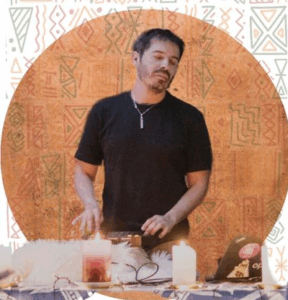
Opening Night
ECSTATIC DANCE
with
DJ Juanito Travels
We’re kicking off Festival SOMA 2025 with a powerful wave of movement and music. Join us for an immersive Ecstatic Dance session led by DJ Juanito Travels, a French-Colombian artist known for his deep, rhythmic journeys across festivals, retreats, and conscious events throughout Europe.
Currently based in Lisbon, DJ Juanito Travels brings a unique blend of global soundscapes, intuitive pacing, and embodied presence — inspired in part by his connection to the field of body-psychotherapy through his partner’s practice. This opening session invites you to land in your body, shake off the travel, and drop into the collective rhythm of SOMA. No talking. No steps to follow. Just your breath, your body, and the beat.
Come as you are. Leave everything on the dance floor.
